- and lack of nutrients is an overlooked problem
 According to the statistics, far too many patients contract an infection while being hospitalized in a Danish hospital. This has enormous human and economic costs that need to be addressed. Hospital infections are not only a consequence of poor hygiene, it actually turns out that 40 percent of the patients are malnourished to some degree, which impairs their immune system and makes them an easier target for infections. Lack of vitamin C, vitamin D, selenium, zinc, and iron seem to be the big and overlooked problem.
According to the statistics, far too many patients contract an infection while being hospitalized in a Danish hospital. This has enormous human and economic costs that need to be addressed. Hospital infections are not only a consequence of poor hygiene, it actually turns out that 40 percent of the patients are malnourished to some degree, which impairs their immune system and makes them an easier target for infections. Lack of vitamin C, vitamin D, selenium, zinc, and iron seem to be the big and overlooked problem.
- then make sure to get enough of the essential nutrients so you can cope with more
 Stress is a large problem for many people. It is believed that the majority of people who consult their physician do it because of stress-related problems. Many people try to relieve their stress with sweets, coffee, alcohol, painkillers, and sleeping medication just to get through the day. However, in the long run, this can turn into a vicious cycle that increases your risk of disease and faster ageing. There are dozens of books about stress that can be useful for solving problems and slowing down your pace, but don’t forget that stress is also physiological. It is a condition that deteriorates tissues, burdens the body with free radicals and increases your need for B-vitamins, vitamin C, magnesium, selenium and coenzyme Q10. If you make sure to get the necessary essential nutrients before it is too late, you can cope with more.
Stress is a large problem for many people. It is believed that the majority of people who consult their physician do it because of stress-related problems. Many people try to relieve their stress with sweets, coffee, alcohol, painkillers, and sleeping medication just to get through the day. However, in the long run, this can turn into a vicious cycle that increases your risk of disease and faster ageing. There are dozens of books about stress that can be useful for solving problems and slowing down your pace, but don’t forget that stress is also physiological. It is a condition that deteriorates tissues, burdens the body with free radicals and increases your need for B-vitamins, vitamin C, magnesium, selenium and coenzyme Q10. If you make sure to get the necessary essential nutrients before it is too late, you can cope with more.
- which many people lack
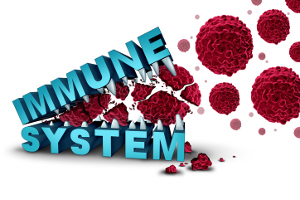 It is not the actual COVID-19 virus that can become lethal. It is the immune system’s overreaction with hyperinflammation and a storm of cytokines that destroys healthy tissue in the lungs, the cardiovascular system, and other places in the body, according to a new article that is published in The Lancet. The capacity of the immune system determines if an infection like COVID-19 is either harmless or life-threatening. For that reason, hygienic measures, masks, isolation, and delayed vaccines are not sufficient. We also need to bolster our immune system against COVID-19 and other pandemics that may occur in the future. Let’s look closer at vitamin C, vitamin D, selenium and zinc, all of which are essential for preventing a well-functioning immune system from going off its rails. What is also worth mentioning is that many people lack these nutrients, especially older people and other exposed groups.
It is not the actual COVID-19 virus that can become lethal. It is the immune system’s overreaction with hyperinflammation and a storm of cytokines that destroys healthy tissue in the lungs, the cardiovascular system, and other places in the body, according to a new article that is published in The Lancet. The capacity of the immune system determines if an infection like COVID-19 is either harmless or life-threatening. For that reason, hygienic measures, masks, isolation, and delayed vaccines are not sufficient. We also need to bolster our immune system against COVID-19 and other pandemics that may occur in the future. Let’s look closer at vitamin C, vitamin D, selenium and zinc, all of which are essential for preventing a well-functioning immune system from going off its rails. What is also worth mentioning is that many people lack these nutrients, especially older people and other exposed groups.
 According to a new study from Johns Hopkins University in the United States, vitamin D is able to protect overweight children against asthma caused by urban air pollution. Sunshine during the summer period is the main source of vitamin D, but due to our modern lifestyles, many people, including children, fail to get enough of the nutrient. This may have widespread consequences, as lack of vitamin D also increases the risk of overweight.
According to a new study from Johns Hopkins University in the United States, vitamin D is able to protect overweight children against asthma caused by urban air pollution. Sunshine during the summer period is the main source of vitamin D, but due to our modern lifestyles, many people, including children, fail to get enough of the nutrient. This may have widespread consequences, as lack of vitamin D also increases the risk of overweight.
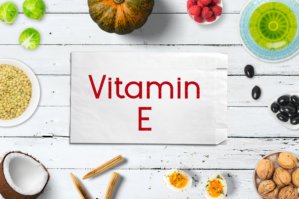 Professor Maret Traber from the Linus Pauling Institute in the United States has studied vitamin E for a number of years. Traber, in a review article, looked at the most recent science concerning this important, lipid-soluble nutrient. Judging from her work, it looks as if we only need the form of vitamin E called alfa-tocopherol.
Professor Maret Traber from the Linus Pauling Institute in the United States has studied vitamin E for a number of years. Traber, in a review article, looked at the most recent science concerning this important, lipid-soluble nutrient. Judging from her work, it looks as if we only need the form of vitamin E called alfa-tocopherol.
 We all know the importance of eating a healthy diet, exercising, getting sufficient sleep, and sunbathing with caution. Still, life is not always that simple, and even if we stick with the official guidelines for healthy living, it can often be challenging to get adequate amounts of the essential nutrients. Nonetheless, supplements are useful as compensation for these shortcomings. In fact, the use of such products can be compared with plant fertilizers that make plants look healthy, flourish and thrive.
We all know the importance of eating a healthy diet, exercising, getting sufficient sleep, and sunbathing with caution. Still, life is not always that simple, and even if we stick with the official guidelines for healthy living, it can often be challenging to get adequate amounts of the essential nutrients. Nonetheless, supplements are useful as compensation for these shortcomings. In fact, the use of such products can be compared with plant fertilizers that make plants look healthy, flourish and thrive.
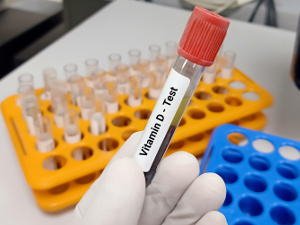 Blood levels of vitamin D serve as an early indicator of future health problems such as cardiovascular disease, osteoporosis, and cancer, according to a review article that was presented recently to the European Society of Endocrinology. Lack of vitamin D is rather common and a threat to public health, which is why the scientists suggest measuring levels of total vitamin D and free vitamin D in the blood. By optimizing levels of the nutrient in the blood it is possible to prevent a host of different lifestyle diseases as well as early death. It is not enough just to take any random vitamin D supplement. It must contain the right dose and have good absorption in order to be able to optimize vitamin D levels in the blood.
Blood levels of vitamin D serve as an early indicator of future health problems such as cardiovascular disease, osteoporosis, and cancer, according to a review article that was presented recently to the European Society of Endocrinology. Lack of vitamin D is rather common and a threat to public health, which is why the scientists suggest measuring levels of total vitamin D and free vitamin D in the blood. By optimizing levels of the nutrient in the blood it is possible to prevent a host of different lifestyle diseases as well as early death. It is not enough just to take any random vitamin D supplement. It must contain the right dose and have good absorption in order to be able to optimize vitamin D levels in the blood.
 COVID-19 represents a serious global threat against public health and the economy because we still lack a vaccine and effective therapies. When COVID-19 becomes life-threatening it is primarily because the immune defense overreacts with a cytokine storm and hyperinflammation that destroys healthy tissue in the lungs, the circulatory system, and other places. Older people and heart failure patients already suffer from chronic low-grade, uncontrolled inflammation, to which nutrient deficiencies contribute and make the patients increasingly vulnerable. This also applies to people with metabolic syndrome and diabetes, many of which are overweight. For that reason, scientists affiliated with universities and research centers in Norway, Sweden, and Russia have searched the scientific literature to find studies that focus on whether supplementation with vitamin D, selenium, and zinc can help prevent a COVID-19 infection from escalating and becoming life-threatening.
COVID-19 represents a serious global threat against public health and the economy because we still lack a vaccine and effective therapies. When COVID-19 becomes life-threatening it is primarily because the immune defense overreacts with a cytokine storm and hyperinflammation that destroys healthy tissue in the lungs, the circulatory system, and other places. Older people and heart failure patients already suffer from chronic low-grade, uncontrolled inflammation, to which nutrient deficiencies contribute and make the patients increasingly vulnerable. This also applies to people with metabolic syndrome and diabetes, many of which are overweight. For that reason, scientists affiliated with universities and research centers in Norway, Sweden, and Russia have searched the scientific literature to find studies that focus on whether supplementation with vitamin D, selenium, and zinc can help prevent a COVID-19 infection from escalating and becoming life-threatening.
Studies have shown that sufferers of recurrent migraine headaches may benefit from supplements of the vitamin-like substance coenzyme Q10.
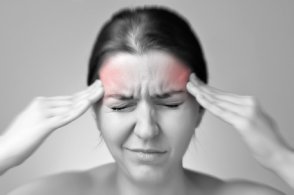 Migraines may be caused by a number of things and cannot be cured as such. A variety of medications have been designed specifically to treat migraines and, in addition, certain drugs that are commonly used to treat other disorders may even help relieve or prevent migraines. However, an increasing number of migraine sufferers seek more natural ways to deal with their recurrent migraine attacks and one remedy that has attracted a substantial amount of interest is the vitamin-like compound coenzyme Q10.
Migraines may be caused by a number of things and cannot be cured as such. A variety of medications have been designed specifically to treat migraines and, in addition, certain drugs that are commonly used to treat other disorders may even help relieve or prevent migraines. However, an increasing number of migraine sufferers seek more natural ways to deal with their recurrent migraine attacks and one remedy that has attracted a substantial amount of interest is the vitamin-like compound coenzyme Q10.
 Apparently so. According to a new study, vitamin B3 (niacin) is a powerful antioxidant that, by means of enzyme processes, protects the body against aging and diseases caused by oxidative stress.
Apparently so. According to a new study, vitamin B3 (niacin) is a powerful antioxidant that, by means of enzyme processes, protects the body against aging and diseases caused by oxidative stress.
- or are you wasting money on the wrong supplements?
 It is only natural to expect a nutritional supplement to be absorbed and deliver an effect. However, for this to happen, you must look for products with documentation. Countless multivitamin products and supplements with Q10, selenium, chromium, magnesium, and iron have very poor quality and are not properly absorbed. Our ageing process alone impairs the uptake of vitamins and minerals, and the same is the case if we lack essential fats, have too high calcium levels, or use antacids and other types of medicine – so this also needs to be taken into account.
It is only natural to expect a nutritional supplement to be absorbed and deliver an effect. However, for this to happen, you must look for products with documentation. Countless multivitamin products and supplements with Q10, selenium, chromium, magnesium, and iron have very poor quality and are not properly absorbed. Our ageing process alone impairs the uptake of vitamins and minerals, and the same is the case if we lack essential fats, have too high calcium levels, or use antacids and other types of medicine – so this also needs to be taken into account.
- and for the prevention of allergies and inflammation
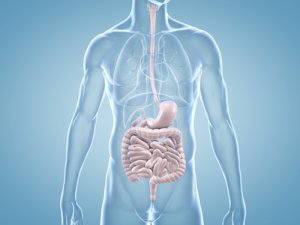 Every day, the intestinal immune system has to defend itself against hordes of microbes and toxins. If it fails to function optimally, there is an increased risk of infections, allergies, and inflammatory diseases. More and more research reveals that essential nutrients help to control the intestinal immune defense. Also, new research shows how important a well-functioning immune system is for our digestion and health in general. This article takes a closer look at the vitamins that are known to be particularly important for the intestinal immune system. Another thing that is vital is to have adequate amounts of gastric juice.
Every day, the intestinal immune system has to defend itself against hordes of microbes and toxins. If it fails to function optimally, there is an increased risk of infections, allergies, and inflammatory diseases. More and more research reveals that essential nutrients help to control the intestinal immune defense. Also, new research shows how important a well-functioning immune system is for our digestion and health in general. This article takes a closer look at the vitamins that are known to be particularly important for the intestinal immune system. Another thing that is vital is to have adequate amounts of gastric juice.
- that are a threat to public health
 Climate changes and soil depletion increase the risk of selenium deficiency, especially in Europe as shown by Swiss scientists. Selenium is an essential nutrient, and existing studies clearly show that low selenium intake increases the risk of cancer, metabolic disorders, impaired immunity, poor sperm quality, and atherosclerosis. Selenium deficiencies are therefore to be taken seriously and should be prevented one way or another. A good way to get enough of the nutrient is by taking a high-quality selenium supplement.
Climate changes and soil depletion increase the risk of selenium deficiency, especially in Europe as shown by Swiss scientists. Selenium is an essential nutrient, and existing studies clearly show that low selenium intake increases the risk of cancer, metabolic disorders, impaired immunity, poor sperm quality, and atherosclerosis. Selenium deficiencies are therefore to be taken seriously and should be prevented one way or another. A good way to get enough of the nutrient is by taking a high-quality selenium supplement.
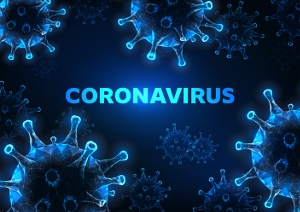 The coronavirus has spread from Wuhan in China to a number of continents, where it has caused massive fear and affected daily life and the global economy. Although most people that get the infection experience a mild course of events, the greatest fear is the potentially life-threatening complications in the respiratory system caused by oxidative stress, which have already taken thousands of human lives. Chinese scientists now call for early intravenous therapy with large doses of vitamin C to prevent oxidative stress and the life-threatening complications that follow in the wake of a derailed immune system. Many researchers also claim that higher intake of vitamin C from dietary sources or supplements help prevent by boosting and regulating the immune system in the upper respiratory tract. The same goes for vitamin D and selenium.
The coronavirus has spread from Wuhan in China to a number of continents, where it has caused massive fear and affected daily life and the global economy. Although most people that get the infection experience a mild course of events, the greatest fear is the potentially life-threatening complications in the respiratory system caused by oxidative stress, which have already taken thousands of human lives. Chinese scientists now call for early intravenous therapy with large doses of vitamin C to prevent oxidative stress and the life-threatening complications that follow in the wake of a derailed immune system. Many researchers also claim that higher intake of vitamin C from dietary sources or supplements help prevent by boosting and regulating the immune system in the upper respiratory tract. The same goes for vitamin D and selenium.
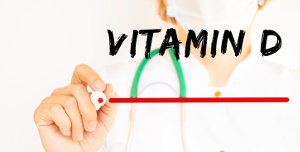 It has already been documented that the widespread problems with vitamin D deficiency increase the risk of being infected with COVID-19 and developing life-threatening complications. In a new study, a team of Turkish scientists has demonstrated that swift treatment with vitamin D can shorten the length of hospital stays plus reduce mortality risk by 50 percent. What’s more, it even has a positive effect on comorbidity. Vitamin D deficiencies are especially common during the winter period and among seniors, people of color, overweight individuals, diabetics, and other vulnerable groups. This makes the study results very relevant, especially when you consider the fact that vaccines only have a limited effect.
It has already been documented that the widespread problems with vitamin D deficiency increase the risk of being infected with COVID-19 and developing life-threatening complications. In a new study, a team of Turkish scientists has demonstrated that swift treatment with vitamin D can shorten the length of hospital stays plus reduce mortality risk by 50 percent. What’s more, it even has a positive effect on comorbidity. Vitamin D deficiencies are especially common during the winter period and among seniors, people of color, overweight individuals, diabetics, and other vulnerable groups. This makes the study results very relevant, especially when you consider the fact that vaccines only have a limited effect.
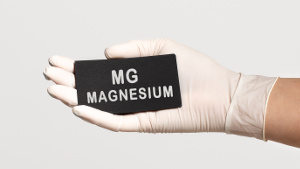 Magnesium is involved in hundreds of chemical reactions in the body, including the activation of vitamin D that we synthesize from sun exposure or take in supplement form. For that reason, magnesium is essential for the immune defense and its ability to fight COVID-19. Moreover, low magnesium levels in the body can foreshadow complications in connection with a COVID-19 infection, according to a study that is published in Nutrients. The scientists therefore say that it is relevant to measure hospitalized patients’ magnesium levels and correct any deficiencies. Many people, especially older individuals, get too little magnesium from their diets, and several types of medicine can impair the uptake and utilization of the nutrient.
Magnesium is involved in hundreds of chemical reactions in the body, including the activation of vitamin D that we synthesize from sun exposure or take in supplement form. For that reason, magnesium is essential for the immune defense and its ability to fight COVID-19. Moreover, low magnesium levels in the body can foreshadow complications in connection with a COVID-19 infection, according to a study that is published in Nutrients. The scientists therefore say that it is relevant to measure hospitalized patients’ magnesium levels and correct any deficiencies. Many people, especially older individuals, get too little magnesium from their diets, and several types of medicine can impair the uptake and utilization of the nutrient.
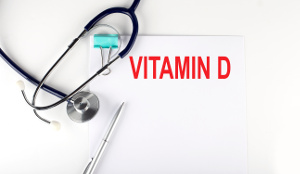 Vitamin D is of vital importance to a well-functioning immune defense and it protects against virus infections. This has been confirmed by Denmark’s infection control agency, Statens Serum Institut, and researchers from Harvard University in Boston, USA. In a study, the Danish and American scientists found that having low levels of vitamin D in the blood is associated with a greater risk of severe disease outcome in patients with COVID-19.
Vitamin D is of vital importance to a well-functioning immune defense and it protects against virus infections. This has been confirmed by Denmark’s infection control agency, Statens Serum Institut, and researchers from Harvard University in Boston, USA. In a study, the Danish and American scientists found that having low levels of vitamin D in the blood is associated with a greater risk of severe disease outcome in patients with COVID-19.
 Vitamin B6 is important for energy levels, the nervous system, our mood, our immune system, our hormone balance, and a number of other functions. This vitamin is of vital importance to our physical and mental well-being but a variety of factors may lead to a deficiency. This article will provide you with information about vitamin B6 and the 11 different symptoms that a deficiency may cause.
Vitamin B6 is important for energy levels, the nervous system, our mood, our immune system, our hormone balance, and a number of other functions. This vitamin is of vital importance to our physical and mental well-being but a variety of factors may lead to a deficiency. This article will provide you with information about vitamin B6 and the 11 different symptoms that a deficiency may cause.
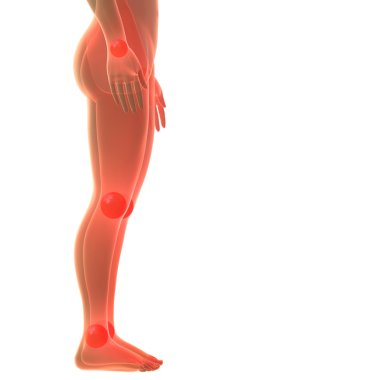 Choose natural solutions instead of potentially lethal medicine
Choose natural solutions instead of potentially lethal medicine
Rheumatic diseases and aching joints are extremely common. One in eight Europeans takes arthritis medication, thereby increasing his or her risk of numerous side effects and premature death. Rheumatism and aching joints are typically caused by inflammation. Research shows that the problems can often be treated with dietary changes and the use of supplements that address the underlying causes and make the pain vanish by itself.
Arthritis drugs take more lives than diabetes and traffic accidents. 7-8% of Europeans use anti-inflammatory painkillers that increase their risk of sensitive gastro-intestinal mucous membranes, indigestion, bleeding ulcers, heart disease, and thrombosis. Calculations show that arthritis drugs take more lives every year than traffic fatalities and diabetes together, making this type of medicine a far greater threat. Most people are unaware of this.
 A new study shows that adding eggs to your mixed salad increases the uptake of vitamin E from the vegetables, so don’t let your fear of fat and cholesterol keep you from consuming eggs. Eggs (yoke and white) contain a multitude of nutrients that are beneficial for your cardiovascular system and blood sugar.
A new study shows that adding eggs to your mixed salad increases the uptake of vitamin E from the vegetables, so don’t let your fear of fat and cholesterol keep you from consuming eggs. Eggs (yoke and white) contain a multitude of nutrients that are beneficial for your cardiovascular system and blood sugar.
 It is commonly known that vitamin A is good for your vision, but most people are unaware that we also need specific nutrients in order for our hearing to function optimally. In this connection, age-related hearing loss is not necessarily linked to mechanical dysfunctions of the ear but rather to how the brain processes the sound information.
It is commonly known that vitamin A is good for your vision, but most people are unaware that we also need specific nutrients in order for our hearing to function optimally. In this connection, age-related hearing loss is not necessarily linked to mechanical dysfunctions of the ear but rather to how the brain processes the sound information.
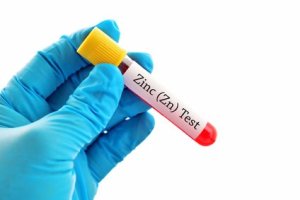 According to a new study that is published in the British Journal of Nutrition, even minor zinc deficiencies may cause poor digestion, skin problems, and fatigue - and lead to numerous other health problems in the long run. You should therefore avoid zinc shortages, and people with poor diets, vegans, vegetarians, and older people should make sure to get enough zinc.
According to a new study that is published in the British Journal of Nutrition, even minor zinc deficiencies may cause poor digestion, skin problems, and fatigue - and lead to numerous other health problems in the long run. You should therefore avoid zinc shortages, and people with poor diets, vegans, vegetarians, and older people should make sure to get enough zinc.
- which is why we need enough vitamin C, selenium, and other antioxidants
 Modern man is exposed to a lot of free radicals because of factors like stress, environmental toxins, etc. Free radicals are like “internal terrorists” that contribute to atherosclerosis, diabetes, Alzheimer’s disease, cancer, and a host of other diseases. Our only protection against free radicals are antioxidants from vitamins, minerals, and plant compounds. Antioxidants work in different ways. Being deficient in a single primary antioxidant such as selenium may leave the body vulnerable to oxidative stress and disease. What most people are unaware of is that free radicals are also essential, as they are a part of our energy turnover and immune defense. The question is how do we protect ourselves the best against infections, oxidative stress, and disease? What type of antioxidant do we get from dark chocolate, green tea, coffee and red wine? How does redox therapy with vitamin C in great quantities work on cancer patients? You can read more about these topics in the following.
Modern man is exposed to a lot of free radicals because of factors like stress, environmental toxins, etc. Free radicals are like “internal terrorists” that contribute to atherosclerosis, diabetes, Alzheimer’s disease, cancer, and a host of other diseases. Our only protection against free radicals are antioxidants from vitamins, minerals, and plant compounds. Antioxidants work in different ways. Being deficient in a single primary antioxidant such as selenium may leave the body vulnerable to oxidative stress and disease. What most people are unaware of is that free radicals are also essential, as they are a part of our energy turnover and immune defense. The question is how do we protect ourselves the best against infections, oxidative stress, and disease? What type of antioxidant do we get from dark chocolate, green tea, coffee and red wine? How does redox therapy with vitamin C in great quantities work on cancer patients? You can read more about these topics in the following.
 Zinc supplements help your immune defense fight colds faster. This was seen in a Finnish meta-analysis where the majority of cold-ridden subjects who took supplements had recovered from their colds after five days, as opposed to those who did not take extra zinc. It is important to choose high-quality zinc supplements, which the body is able to absorb. Moreover, it is vital that the dose is sufficiently high during those days where the immune system actively fights the cold. High-dosed zinc supplementation is not encouraged for therapeutic use in other cases.
Zinc supplements help your immune defense fight colds faster. This was seen in a Finnish meta-analysis where the majority of cold-ridden subjects who took supplements had recovered from their colds after five days, as opposed to those who did not take extra zinc. It is important to choose high-quality zinc supplements, which the body is able to absorb. Moreover, it is vital that the dose is sufficiently high during those days where the immune system actively fights the cold. High-dosed zinc supplementation is not encouraged for therapeutic use in other cases.
 Lack of vitamin D and selenium increases your risk of catching a cold or the flu or accompanying complications. Many people resort to Echinacea, ginger, and smoothies filled to the rim with vitamin C and secondary immune compounds, but these measures can never replace the two essential nutrients, selenium and vitamin D.
Lack of vitamin D and selenium increases your risk of catching a cold or the flu or accompanying complications. Many people resort to Echinacea, ginger, and smoothies filled to the rim with vitamin C and secondary immune compounds, but these measures can never replace the two essential nutrients, selenium and vitamin D.
The H PV vaccine that is used as protection against cervical cancer has been subject to massive media coverage lately because it has serious side effects. But how do people make an informed choice? And is it possible to use specific essential nutrients to boost the immune system against HPV and possible side effects from this vaccine?
PV vaccine that is used as protection against cervical cancer has been subject to massive media coverage lately because it has serious side effects. But how do people make an informed choice? And is it possible to use specific essential nutrients to boost the immune system against HPV and possible side effects from this vaccine?
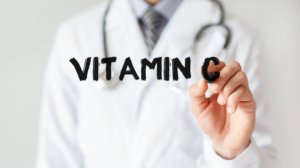 Blood poisoning, also called sepsis, is a life-threatening condition that requires immediate medical attention. A combination of high-dosed, intravenously administered vitamin C may, however, shorten the hospital stay and lower the risk of dying, according to a study that is published in Journal of the American Medical Association. The study supports earlier research where a combination of intravenous vitamin C and vitamin B1 delivered even better results. These are simple and inexpensive therapies that can save lives by supporting the immune system and limiting damage to the cardiovascular system, the lungs, and other tissues.
Blood poisoning, also called sepsis, is a life-threatening condition that requires immediate medical attention. A combination of high-dosed, intravenously administered vitamin C may, however, shorten the hospital stay and lower the risk of dying, according to a study that is published in Journal of the American Medical Association. The study supports earlier research where a combination of intravenous vitamin C and vitamin B1 delivered even better results. These are simple and inexpensive therapies that can save lives by supporting the immune system and limiting damage to the cardiovascular system, the lungs, and other tissues.
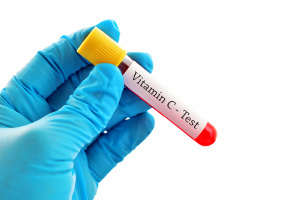 Chronic fatigue commonly follows in the wake of influenza, herpes, COVID-19, and other infections. The immune system does not function optimally, and the tiredness is caused by oxidative stress and inflammation. The condition is often accompanied by poor concentration, depression, and sleep disturbances. Oxidative stress is an imbalance between pro-inflammatory free radicals and protective antioxidants. Vitamin C happens to be one of the most potent antioxidants, and intravenous vitamin C therapy has been shown to reduce tiredness that follows after different types of virus infections, according to a review article in the scientific journal Nutrients. Here, the scientists also write about intravenous vitamin C therapy in connection with chronic fatigue syndrome following COVID-19 infections.
Chronic fatigue commonly follows in the wake of influenza, herpes, COVID-19, and other infections. The immune system does not function optimally, and the tiredness is caused by oxidative stress and inflammation. The condition is often accompanied by poor concentration, depression, and sleep disturbances. Oxidative stress is an imbalance between pro-inflammatory free radicals and protective antioxidants. Vitamin C happens to be one of the most potent antioxidants, and intravenous vitamin C therapy has been shown to reduce tiredness that follows after different types of virus infections, according to a review article in the scientific journal Nutrients. Here, the scientists also write about intravenous vitamin C therapy in connection with chronic fatigue syndrome following COVID-19 infections.
 Minerals are involved in countless functions of vital importance to the immune defense. That is why lack of one or several minerals can increase your risk of infections or perhaps trigger unwanted inflammation that can damage healthy tissue. In a new review article that is published in Nutrients, a group of scientists look at magnesium, selenium, zinc, iron, and copper and their role in the immune system. They also look at the fact that vegans, older people, chronically ill, pregnant women, and elite athletes often have nutrient deficiencies that call for supplementation. The agricultural soil in Europe and many other parts of the world is selenium-depleted, which makes it challenging to get enough selenium from our diets. But it is also important not to overdose on minerals. In this article, you can read more about how to optimize your nutrient intake for your immune health.
Minerals are involved in countless functions of vital importance to the immune defense. That is why lack of one or several minerals can increase your risk of infections or perhaps trigger unwanted inflammation that can damage healthy tissue. In a new review article that is published in Nutrients, a group of scientists look at magnesium, selenium, zinc, iron, and copper and their role in the immune system. They also look at the fact that vegans, older people, chronically ill, pregnant women, and elite athletes often have nutrient deficiencies that call for supplementation. The agricultural soil in Europe and many other parts of the world is selenium-depleted, which makes it challenging to get enough selenium from our diets. But it is also important not to overdose on minerals. In this article, you can read more about how to optimize your nutrient intake for your immune health.
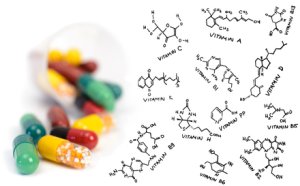 Many people take a multivitamin this time of year. However, even if the manufacturers really squeeze together the ingredients it is impossible to put enough vitamins and minerals in one pill to cover our actual needs. In fact, the manufacturing process determines if we are able to absorb the different nutrients in the first place, and that is important for them to work properly in the body. Therefore, it is vital that you choose a supplement that has good quality, and you must make sure to focus on the vitamins, minerals, and essential fatty acids that we humans typically tend to lack.
Many people take a multivitamin this time of year. However, even if the manufacturers really squeeze together the ingredients it is impossible to put enough vitamins and minerals in one pill to cover our actual needs. In fact, the manufacturing process determines if we are able to absorb the different nutrients in the first place, and that is important for them to work properly in the body. Therefore, it is vital that you choose a supplement that has good quality, and you must make sure to focus on the vitamins, minerals, and essential fatty acids that we humans typically tend to lack.
- and that is really bad for your health
 Vitamin D comes in different forms that all need magnesium to be activated in order for the vitamin to be able to benefit all the cells and tissues in the body. Unfortunately, many people lack magnesium, and that makes vitamin D ineffective. Vitamin D also increases the uptake of calcium, but with too little magnesium in the organism, the risk of atherosclerosis increases, as does the risk of osteoporosis, impaired immune resistance, and metabolic syndrome (an early stage of type 2 diabetes.) All of this was observed in a study that is published in The Journal of the American Osteopathic Association.
Vitamin D comes in different forms that all need magnesium to be activated in order for the vitamin to be able to benefit all the cells and tissues in the body. Unfortunately, many people lack magnesium, and that makes vitamin D ineffective. Vitamin D also increases the uptake of calcium, but with too little magnesium in the organism, the risk of atherosclerosis increases, as does the risk of osteoporosis, impaired immune resistance, and metabolic syndrome (an early stage of type 2 diabetes.) All of this was observed in a study that is published in The Journal of the American Osteopathic Association.
- and become increasingly dangerous
 Around one billion people worldwide are believed to lack selenium, mainly due to nutrient-depleted farmland. Selenium deficiency makes us more vulnerable to infections and increases the risk of a virus mutating and becoming more dangerous. This was shown in previous studies of RNA virus that can cause influenza, hepatitis, HIV, and Keshan disease. Coronavirus that causes the common cold and COVID-19 infections also belongs to the group of RNA virus and has a unique ability to mutate. Three new mutated virus types have been found in mink and stand in the way of a future vaccine. Therefore, we are forced to bolster our immune defense, which is designed to attack virus from different angles. Still, even if we eat a healthy diet it can be challenging to get enough selenium, and that is why an increasing number of international researchers now recommend selenium supplements to help fight coronavirus.
Around one billion people worldwide are believed to lack selenium, mainly due to nutrient-depleted farmland. Selenium deficiency makes us more vulnerable to infections and increases the risk of a virus mutating and becoming more dangerous. This was shown in previous studies of RNA virus that can cause influenza, hepatitis, HIV, and Keshan disease. Coronavirus that causes the common cold and COVID-19 infections also belongs to the group of RNA virus and has a unique ability to mutate. Three new mutated virus types have been found in mink and stand in the way of a future vaccine. Therefore, we are forced to bolster our immune defense, which is designed to attack virus from different angles. Still, even if we eat a healthy diet it can be challenging to get enough selenium, and that is why an increasing number of international researchers now recommend selenium supplements to help fight coronavirus.
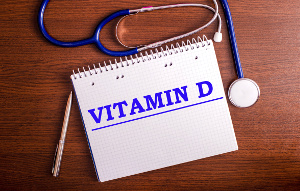 Vitamin D plays an overlooked role in the immune defense. Being deficient of the nutrient increases your risk of bacterial pneumonia by up to 60 percent, according to a large Danish study of 116,000 participants that was carried out by scientists from Herlev Hospital, Gentofte Hospital, and the University of Copenhagen.
Vitamin D plays an overlooked role in the immune defense. Being deficient of the nutrient increases your risk of bacterial pneumonia by up to 60 percent, according to a large Danish study of 116,000 participants that was carried out by scientists from Herlev Hospital, Gentofte Hospital, and the University of Copenhagen.
Because many older people, cancer patients, and other chronically ill individuals are at increased risk of respiratory infections and because bacterial pneumonia can be potentially lethal, the scientists see a huge potential in using vitamin D supplements to prevent the disease.
 It is hardly a coincidence that sore throats, colds, flus, and related complications such as sinus infections and pneumonia typically circulate during the winter period. They are primarily a result of having low vitamin D levels. During the winter, the sun sits too low in the sky to enable vitamin D synthesis in our skin, and we only have a limited amount of the nutrient stored in the liver. Good hand hygiene, warm soup, garlic, echinacea and other immune-boosting herbs alone will not deal with the problem, as they can never compensate for our lack of essential vitamin D, which the white blood cells of our immune system need in order to silently kill of virus. But how much vitamin D do we need, is it possible to get too much, and which mineral is necessary for activating the vitamin?
It is hardly a coincidence that sore throats, colds, flus, and related complications such as sinus infections and pneumonia typically circulate during the winter period. They are primarily a result of having low vitamin D levels. During the winter, the sun sits too low in the sky to enable vitamin D synthesis in our skin, and we only have a limited amount of the nutrient stored in the liver. Good hand hygiene, warm soup, garlic, echinacea and other immune-boosting herbs alone will not deal with the problem, as they can never compensate for our lack of essential vitamin D, which the white blood cells of our immune system need in order to silently kill of virus. But how much vitamin D do we need, is it possible to get too much, and which mineral is necessary for activating the vitamin?
 Levels of magnesium in the blood are determining for the immune system’s ability to attack pathogens and cancer cells, according to a new study from the University of Basel and the University Hospital Basel. The scientists have discovered that the T cells of the immune system need magnesium in order to carry out proper attacks. According to the scientists, these results are extremely important because magnesium has a potential role in new immunotherapies targeted at cancer patients. It is generally important to get plenty of magnesium because this nutrient is vital for the body’s calcium distribution and for supporting hundreds of enzyme processes.
Levels of magnesium in the blood are determining for the immune system’s ability to attack pathogens and cancer cells, according to a new study from the University of Basel and the University Hospital Basel. The scientists have discovered that the T cells of the immune system need magnesium in order to carry out proper attacks. According to the scientists, these results are extremely important because magnesium has a potential role in new immunotherapies targeted at cancer patients. It is generally important to get plenty of magnesium because this nutrient is vital for the body’s calcium distribution and for supporting hundreds of enzyme processes.
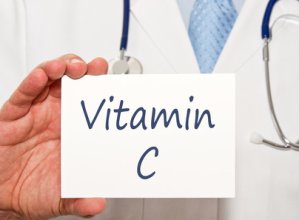 Nowadays, fruit, potatoes, and vegetables in general contain very little vitamin C, and the majority of people fail to eat the recommended amount of these foods, in the first place. Unhealthy diets and lack of vitamin C increase the risk of colds, influenza, and other infections, simply because the immune system consumes large amounts of vitamin C in connection with the first explosive attacks that prevent virus from causing an infection. Vitamin C also has an important role in battling infections and preventing them from dragging on and leading to complications such as bronchitis or pneumonia.
Nowadays, fruit, potatoes, and vegetables in general contain very little vitamin C, and the majority of people fail to eat the recommended amount of these foods, in the first place. Unhealthy diets and lack of vitamin C increase the risk of colds, influenza, and other infections, simply because the immune system consumes large amounts of vitamin C in connection with the first explosive attacks that prevent virus from causing an infection. Vitamin C also has an important role in battling infections and preventing them from dragging on and leading to complications such as bronchitis or pneumonia.
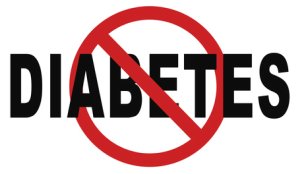 Type 2 diabetes and early stages of the disease such as insulin resistance are spreading like a bushfire. The good news is that if you consume many antioxidants from fruit, vegetables, berries, tea, and dark chocolate and limit your intake of alcohol, you can lower your risk diabetes risk. This was shown in a new study that is published in the European journal Diabetologia, which focuses on diabetes research.
Type 2 diabetes and early stages of the disease such as insulin resistance are spreading like a bushfire. The good news is that if you consume many antioxidants from fruit, vegetables, berries, tea, and dark chocolate and limit your intake of alcohol, you can lower your risk diabetes risk. This was shown in a new study that is published in the European journal Diabetologia, which focuses on diabetes research.
 More than 25 percent of people older than 65 years have low levels of vitamin D in their blood. Deficiencies in vitamin B12, folic acid, and iron are also common. This is the conclusion of a large study that was conducted by scientists from Helmholtz Zentrum in Munich, Germany. The widespread lack of vitamins and minerals among older people is critical, especially because this population group is increasing. The lack of essential nutrients affects the calcium uptake, immune defense, and nervous system among other things, leaving older people increasingly vulnerable to osteoporosis, influenza, dementia, and a host of other diseases that impair quality of life and burden the entire public health sector.
More than 25 percent of people older than 65 years have low levels of vitamin D in their blood. Deficiencies in vitamin B12, folic acid, and iron are also common. This is the conclusion of a large study that was conducted by scientists from Helmholtz Zentrum in Munich, Germany. The widespread lack of vitamins and minerals among older people is critical, especially because this population group is increasing. The lack of essential nutrients affects the calcium uptake, immune defense, and nervous system among other things, leaving older people increasingly vulnerable to osteoporosis, influenza, dementia, and a host of other diseases that impair quality of life and burden the entire public health sector.
 Cancer researchers from the University of Iowa in the United States have finally clarified how extremely high doses of vitamin C given as infusions are able to kill cancer cells. It turns out that the low levels of the enzyme, catalase, in cancer cells make them vulnerable to vitamin C’s ability to generate free radicals. That way, vitamin C works like a type of chemotherapy, while, at the same time, stimulating normal activity in healthy cells. We are dealing with a treatment that is virtually devoid of side effects.
Cancer researchers from the University of Iowa in the United States have finally clarified how extremely high doses of vitamin C given as infusions are able to kill cancer cells. It turns out that the low levels of the enzyme, catalase, in cancer cells make them vulnerable to vitamin C’s ability to generate free radicals. That way, vitamin C works like a type of chemotherapy, while, at the same time, stimulating normal activity in healthy cells. We are dealing with a treatment that is virtually devoid of side effects.
 Insomnia is common among cancer patients. Sleep medicine is associated with serious side effects, but research shows that the natural hormone, melatonin, may help improve the sleep quality of cancer patients in several different ways. Melatonin even has cancer-inhibiting mechanisms that deserve a closer look in terms of prevention and treatment.
Insomnia is common among cancer patients. Sleep medicine is associated with serious side effects, but research shows that the natural hormone, melatonin, may help improve the sleep quality of cancer patients in several different ways. Melatonin even has cancer-inhibiting mechanisms that deserve a closer look in terms of prevention and treatment.
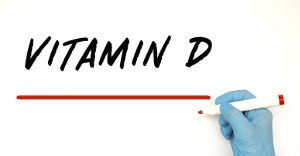 The winter period is the time of year where we typically lack vitamin D, and this contributes to new waves of COVID-19 and other virus infections. Moreover, many older people, dark-skinned individuals, nursing home residents, and diabetics often suffer from chronic vitamin D deficiency which makes them much more vulnerable. Since the springe of 2020, numerous studies have demonstrated that lack of vitamin D increases the risk of COVID-19 infections, acute respiratory distress syndrome (ARDS), intensive care admission, and death. This is described in a new meta-analysis that is published in Frontiers in Public Health. Danish threshold levels for vitamin D in the blood are also too low, apparently. The question is: How much vitamin D do we really need?
The winter period is the time of year where we typically lack vitamin D, and this contributes to new waves of COVID-19 and other virus infections. Moreover, many older people, dark-skinned individuals, nursing home residents, and diabetics often suffer from chronic vitamin D deficiency which makes them much more vulnerable. Since the springe of 2020, numerous studies have demonstrated that lack of vitamin D increases the risk of COVID-19 infections, acute respiratory distress syndrome (ARDS), intensive care admission, and death. This is described in a new meta-analysis that is published in Frontiers in Public Health. Danish threshold levels for vitamin D in the blood are also too low, apparently. The question is: How much vitamin D do we really need?
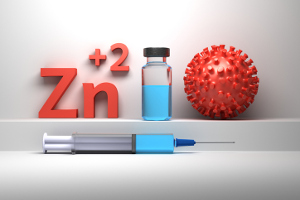 Australian scientists are about to initiate the first clinical trial of intravenous zinc therapy for COVID-19 patients. Zinc is important for our immune capacity but it also helps counteract organ damage caused by an impaired oxygen supply to the cells and hyperinflammation. Zinc deficiencies are common, especially among older people, chronically ill, and other exposed groups.
Australian scientists are about to initiate the first clinical trial of intravenous zinc therapy for COVID-19 patients. Zinc is important for our immune capacity but it also helps counteract organ damage caused by an impaired oxygen supply to the cells and hyperinflammation. Zinc deficiencies are common, especially among older people, chronically ill, and other exposed groups.
 New Year’s resolutions are often related to healthier living with better dietary choices, fewer stimulants, and more exercise. We want to stay as young and vital as possible with lots of energy. However, life is not always that simple, and nature often needs a helping hand. The following anti-ageing tips – including the essential beauty sleep – are based on a summary of articles that have all been published previously on this site.
New Year’s resolutions are often related to healthier living with better dietary choices, fewer stimulants, and more exercise. We want to stay as young and vital as possible with lots of energy. However, life is not always that simple, and nature often needs a helping hand. The following anti-ageing tips – including the essential beauty sleep – are based on a summary of articles that have all been published previously on this site.
 Older people can easily become deficient of vitamins and minerals, which can weaken their immune system and make them more prone to infections and prolonged periods with disease. On the other hand, older people who take a multivitamin and mineral supplement with zinc and large quantities of vitamin C experience fewer days with disease and have less severe symptoms, according to a placebo-controlled study from Oregon State University. But many multivitamin supplements do not contain enough vitamin D and it is very important for older people to get enough of this nutrient.
Older people can easily become deficient of vitamins and minerals, which can weaken their immune system and make them more prone to infections and prolonged periods with disease. On the other hand, older people who take a multivitamin and mineral supplement with zinc and large quantities of vitamin C experience fewer days with disease and have less severe symptoms, according to a placebo-controlled study from Oregon State University. But many multivitamin supplements do not contain enough vitamin D and it is very important for older people to get enough of this nutrient.
 During spring and summer, many people suffer from allergy symptoms and hay fever because their immune system overreacts to airborne pollen. However, according to a new American study, it is possible that different lactic acid bacteria and bifidobacteria can help alleviate the symptoms. The explanation lies in our intestinal microflora and its importance for a properly functioning immune system.
During spring and summer, many people suffer from allergy symptoms and hay fever because their immune system overreacts to airborne pollen. However, according to a new American study, it is possible that different lactic acid bacteria and bifidobacteria can help alleviate the symptoms. The explanation lies in our intestinal microflora and its importance for a properly functioning immune system.
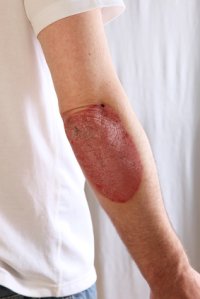 Psoriasis patients are generally interested in their diet and how it affects their disease. So far, there has not been much data so far to support a connection, but a new American study has mapped out the exact effects of regular diet habits and various supplements.
Psoriasis patients are generally interested in their diet and how it affects their disease. So far, there has not been much data so far to support a connection, but a new American study has mapped out the exact effects of regular diet habits and various supplements.
- but ageing processes and cholesterol-lowering drugs inhibit the body’s Q10 synthesis
 No matter how you twist and turn it, cholesterol is an essential substance, and we humans produce most of it ourselves. What is important is to make sure that the cholesterol we have in our blood does not oxidize, and that is something which Q10 and other antioxidants take care of. Stable blood sugar levels also help us maintain a healthy cholesterol balance.
No matter how you twist and turn it, cholesterol is an essential substance, and we humans produce most of it ourselves. What is important is to make sure that the cholesterol we have in our blood does not oxidize, and that is something which Q10 and other antioxidants take care of. Stable blood sugar levels also help us maintain a healthy cholesterol balance.
 Periodontal disease affects most people at some stage in life. However, according to a recent study that is published in Contemporary Clinical Dentistry, supplemental use of Q10 and tea tree oil may have potential benefits.
Periodontal disease affects most people at some stage in life. However, according to a recent study that is published in Contemporary Clinical Dentistry, supplemental use of Q10 and tea tree oil may have potential benefits.
 Q10 is a coenzyme that is involved in cellular energy production and protection of our cells. There are numerous cosmetics with Q10 that are believed to delay skin ageing. However, only limited amounts of data have been available to prove the effect of Q10 on skin - until recently.
Q10 is a coenzyme that is involved in cellular energy production and protection of our cells. There are numerous cosmetics with Q10 that are believed to delay skin ageing. However, only limited amounts of data have been available to prove the effect of Q10 on skin - until recently.
 According to a Japanese study, some people with Parkinson’s disease may find that coenzyme Q10 helps to relieve their symptoms. Q10 occurs in two forms, both of which have vital functions, but the scientists observed that only the one form had a positive effect on Parkinson’s disease. Nonetheless, when supplementing with Q10, both forms are equally good. What matters is that the active compound can be absorbed. Once it has been absorbed, the body can shift from one form to the other, a process that also requires selenium.
According to a Japanese study, some people with Parkinson’s disease may find that coenzyme Q10 helps to relieve their symptoms. Q10 occurs in two forms, both of which have vital functions, but the scientists observed that only the one form had a positive effect on Parkinson’s disease. Nonetheless, when supplementing with Q10, both forms are equally good. What matters is that the active compound can be absorbed. Once it has been absorbed, the body can shift from one form to the other, a process that also requires selenium.
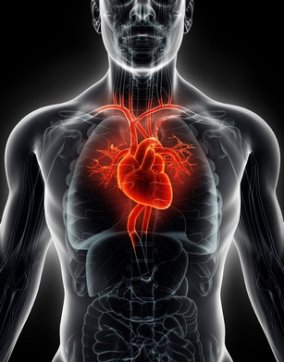 Many people suffer from chronic heart failure - often without knowing it. Numerous studies have shown that supplementing with Q10 can improve quality of life and even reduce mortality. An article published in Pharmacologic Therapy reviews the many Q10 studies and makes a point of saying that it is important to choose a Q10 preparation with good bioavailability.
Many people suffer from chronic heart failure - often without knowing it. Numerous studies have shown that supplementing with Q10 can improve quality of life and even reduce mortality. An article published in Pharmacologic Therapy reviews the many Q10 studies and makes a point of saying that it is important to choose a Q10 preparation with good bioavailability.
 The immune system needs selenium every single day. Lack of this nutrient increases your risk of virus infections, inflammation, and cancer. It is a huge problem that many of us get too little selenium because of factors such as nutrient-depleted soil and unhealthy eating habits.
The immune system needs selenium every single day. Lack of this nutrient increases your risk of virus infections, inflammation, and cancer. It is a huge problem that many of us get too little selenium because of factors such as nutrient-depleted soil and unhealthy eating habits.
 Schizophrenia, a brain disease, is an extreme burden to the patient as well as to the patient’s family. However, a large meta-analysis published in Psychological Medicine documents that adjuvant therapy with large doses of vitamin B6, vitamin B12 and biotin (vitamin B8) in combination with standard therapy can reduce the symptoms more effectively than standard therapy alone. It is an advantage to start taking high-dosed B vitamin supplements as early as possible in the disease course. There are several reasons why B vitamins have such a great impact on the brain and our mental health
Schizophrenia, a brain disease, is an extreme burden to the patient as well as to the patient’s family. However, a large meta-analysis published in Psychological Medicine documents that adjuvant therapy with large doses of vitamin B6, vitamin B12 and biotin (vitamin B8) in combination with standard therapy can reduce the symptoms more effectively than standard therapy alone. It is an advantage to start taking high-dosed B vitamin supplements as early as possible in the disease course. There are several reasons why B vitamins have such a great impact on the brain and our mental health
 Selenium is crucial for your thyroid function, immune system, cardiovascular system, and even for preventing cancer. Fish and shellfish are among the best selenium sources, but even 200 grams of fish and shellfish five days a week won’t do the trick, according to a Danish selenium study. What makes it even more difficult to obtain optimal amounts of this nutrient is that the agricultural soil in large parts of Europe is stripped of vital nutrients like selenium. Margaret P. Rayman, one of Europe’s leading experts on selenium, says that there is a direct link between the decreasing selenium intake and the increasing rate of cancers, rheumatism, infertility, and numerous other health problems. The question is, how do we humans get enough selenium?
Selenium is crucial for your thyroid function, immune system, cardiovascular system, and even for preventing cancer. Fish and shellfish are among the best selenium sources, but even 200 grams of fish and shellfish five days a week won’t do the trick, according to a Danish selenium study. What makes it even more difficult to obtain optimal amounts of this nutrient is that the agricultural soil in large parts of Europe is stripped of vital nutrients like selenium. Margaret P. Rayman, one of Europe’s leading experts on selenium, says that there is a direct link between the decreasing selenium intake and the increasing rate of cancers, rheumatism, infertility, and numerous other health problems. The question is, how do we humans get enough selenium?
 Our nutritional status is of vital importance to our health and our ability to handle infections. Selenium has several functions in the immune system, including its role as an antioxidant and in counteracting unwanted inflammation. Selenium is also able to prevent virus from mutating and becoming more virulent or creating new waves of disease. A team of Chinese scientists have reviewed a number of studies of selenium and its key role in the defense against influenza, HIV, and other types of RNA virus. They have found, among other things, that the risk of contracting a COVID-19 infection is 10 times lower in areas where the soil is rich in selenium. Therefore, it is a huge problem that selenium deficiency due to selenium-depleted farmland is so widespread in Europe, China, Africa, and many other places.
Our nutritional status is of vital importance to our health and our ability to handle infections. Selenium has several functions in the immune system, including its role as an antioxidant and in counteracting unwanted inflammation. Selenium is also able to prevent virus from mutating and becoming more virulent or creating new waves of disease. A team of Chinese scientists have reviewed a number of studies of selenium and its key role in the defense against influenza, HIV, and other types of RNA virus. They have found, among other things, that the risk of contracting a COVID-19 infection is 10 times lower in areas where the soil is rich in selenium. Therefore, it is a huge problem that selenium deficiency due to selenium-depleted farmland is so widespread in Europe, China, Africa, and many other places.
– and lack of vitamin D increases the risk
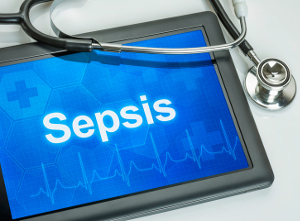 The minority of people think about the danger of sepsis, which is a serious blood poisoning. However, according to WHO, sepsis is rather common and it is the third leading cause of death, only surpassed by cardiovascular diseases and cancer. According to Ugeskrift for Læger (the journal of the Danish Medical Association), it is a paradox that Denmark has no official registry of the rate and high mortality of sepsis. Also, the risk of getting sepsis and dying of the condition is heavily increased if you lack vitamin D, according to an Iranian study that is published in Archives of Academic Emergency Medicine. We need to focus more on sepsis, including diagnosis, swift treatment, and prevention of this life-threatening disease.
The minority of people think about the danger of sepsis, which is a serious blood poisoning. However, according to WHO, sepsis is rather common and it is the third leading cause of death, only surpassed by cardiovascular diseases and cancer. According to Ugeskrift for Læger (the journal of the Danish Medical Association), it is a paradox that Denmark has no official registry of the rate and high mortality of sepsis. Also, the risk of getting sepsis and dying of the condition is heavily increased if you lack vitamin D, according to an Iranian study that is published in Archives of Academic Emergency Medicine. We need to focus more on sepsis, including diagnosis, swift treatment, and prevention of this life-threatening disease.
 Many women experience sleep deprivation as one of the biggest problems of menopause. Not only does this condition cause fatigue, it also increases the risk of overweight, depression, impaired immune resistance, weak bones, atherosclerosis, and dementia. It is therefore a very good idea to solve any sleeping problem with the natural substance melatonin and a few other simple adjustments.
Many women experience sleep deprivation as one of the biggest problems of menopause. Not only does this condition cause fatigue, it also increases the risk of overweight, depression, impaired immune resistance, weak bones, atherosclerosis, and dementia. It is therefore a very good idea to solve any sleeping problem with the natural substance melatonin and a few other simple adjustments.
 Melatonin is primarily for its role as a sleep hormone. However, it also increases the effect of tamoxifen and reduces side effects in the aftercare of breast cancer. Science has known about melatonin's cancer preventative properties for quite some time, and by embedding the hormone in small "lipid bubbles", tamoxifen is able to destroy even more breast cancer cells, according to Iranian research.
Melatonin is primarily for its role as a sleep hormone. However, it also increases the effect of tamoxifen and reduces side effects in the aftercare of breast cancer. Science has known about melatonin's cancer preventative properties for quite some time, and by embedding the hormone in small "lipid bubbles", tamoxifen is able to destroy even more breast cancer cells, according to Iranian research.
 During the winter period, many of us have runny noses and some may end up in bed with a bout of flu. Now is the time to prime your immune system by getting all those vitamins and minerals that your diet is not always able to provide you. That way you can ward off germs and avoid unnecessary sick days. But what effect does vitamin C, vitamin D, selenium, and zinc have on the immune system’s different “troops”, and how much do we need?
During the winter period, many of us have runny noses and some may end up in bed with a bout of flu. Now is the time to prime your immune system by getting all those vitamins and minerals that your diet is not always able to provide you. That way you can ward off germs and avoid unnecessary sick days. But what effect does vitamin C, vitamin D, selenium, and zinc have on the immune system’s different “troops”, and how much do we need?
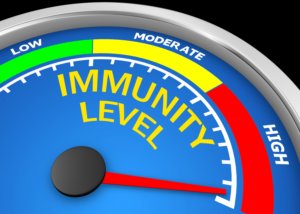 Scientists have discovered traces of antibiotic-resistant super bacteria (NDM-1) in the soil of Svalbard. This archipelago is located in the arctic ocean between the North Pole and Norway, several thousand kilometers from India where the bacteria was originally discovered. This is described in a study that is published in the science journal, Environment International. Bacteria with the resistance gene NDM-1 have now spread to a number of other countries and many people have lost their lives to them. Humans are also challenged by other antibiotic-resistant bacteria, and the British health authorities consider this to be a larger threat to humans than climate change. But what causes these bacteria to develop resistance? And what vitamins and minerals are particularly important for bolstering the immune system? After all, our immune defense is our only way of protecting ourselves if antibiotics fail to work.
Scientists have discovered traces of antibiotic-resistant super bacteria (NDM-1) in the soil of Svalbard. This archipelago is located in the arctic ocean between the North Pole and Norway, several thousand kilometers from India where the bacteria was originally discovered. This is described in a study that is published in the science journal, Environment International. Bacteria with the resistance gene NDM-1 have now spread to a number of other countries and many people have lost their lives to them. Humans are also challenged by other antibiotic-resistant bacteria, and the British health authorities consider this to be a larger threat to humans than climate change. But what causes these bacteria to develop resistance? And what vitamins and minerals are particularly important for bolstering the immune system? After all, our immune defense is our only way of protecting ourselves if antibiotics fail to work.
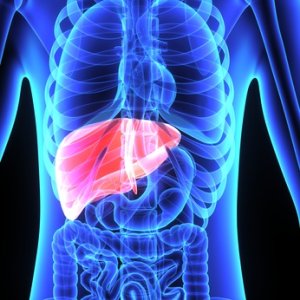 Researchers have found that sufferers of non-alcoholic fatty liver disease (NAFLD) can protect themselves by taking the vitamin-like substance coenzyme Q10.
Researchers have found that sufferers of non-alcoholic fatty liver disease (NAFLD) can protect themselves by taking the vitamin-like substance coenzyme Q10.
Non-alcoholic fatty liver disease is a chronic liver disorder that involves inflammation of the liver and may worsen through a four-stage progression that may eventually lead to cirrhosis and liver cancer. The condition, which is characterized by a build-up of fat in the liver cells and typically affects people who are diabetic or overweight. There is currently no medical treatment for NAFLD but science has found that the vitamin-like substance coenzyme Q10 may be able to improve the liver’s fat metabolism and reduce the inflammation.
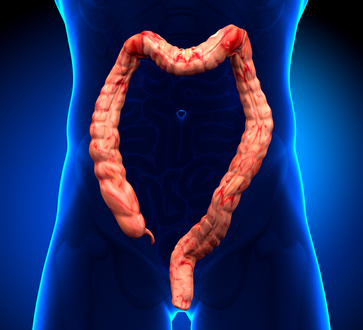 A recently published study shows promising results of giving daily supplements of vitamin D to sufferers of Crohn's disease. Apparently, the vitamin improves the intestinal barrier dysfunction associated with the ailment.
A recently published study shows promising results of giving daily supplements of vitamin D to sufferers of Crohn's disease. Apparently, the vitamin improves the intestinal barrier dysfunction associated with the ailment.
 Here is the formula for quality of life in seniors
Here is the formula for quality of life in seniors
Besides cutting the number cardiovascular deaths in half, elderly people who take supplements of selenium and coenzyme Q10 have better quality of life, are less prone to disease, and have more energy than those who do not take the supplements.
 During the winter period, many people catch a cold or are bed-ridden with a bout of the flu. They may consider this to be perfectly natural, but it is actually a sign of a weakened immune defense, and that makes them susceptible to contamination. What matters is to make sure to get plenty of vitamin D, vitamin C, selenium, and zinc, all of which are nutrients that have different functions in the immune system. Some nutrients are also needed in larger quantities to tackle a beginning infection, and it is important to act quickly in order to nip the infection in the bud.
During the winter period, many people catch a cold or are bed-ridden with a bout of the flu. They may consider this to be perfectly natural, but it is actually a sign of a weakened immune defense, and that makes them susceptible to contamination. What matters is to make sure to get plenty of vitamin D, vitamin C, selenium, and zinc, all of which are nutrients that have different functions in the immune system. Some nutrients are also needed in larger quantities to tackle a beginning infection, and it is important to act quickly in order to nip the infection in the bud.
In fact, it is vital for us to be nutritionally bolstered during the winter period, where otherwise harmless virus infections can lead to complications such as herpes, bronchitis, and pneumonia, if the immune system is unable to work full throttle.
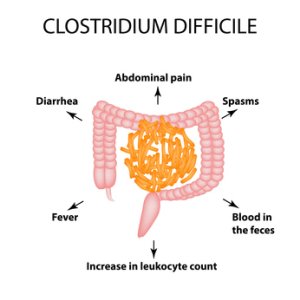 Clostridium difficile is a bacterium that causes diarrhea and intestinal infection. The infection may even be life-threatening. A new American study that is published in PLoS Pathogens shows that this bacterium can only thrive with an overload of calcium in the intestinal system. Such a calcium excess can be caused by overconsumption of calcium, lack of vitamin D, and regular use of antacids.
Clostridium difficile is a bacterium that causes diarrhea and intestinal infection. The infection may even be life-threatening. A new American study that is published in PLoS Pathogens shows that this bacterium can only thrive with an overload of calcium in the intestinal system. Such a calcium excess can be caused by overconsumption of calcium, lack of vitamin D, and regular use of antacids.

- a condition that may cause a variety of different symptoms
It appears that an increasing number of people suffer from some kind of milk allergy. Science is primarily focused on lactose intolerance, a condition that is caused by a deficiency of a digestive enzyme. The allergic reactions normally show almost immediately after ingesting dairy products. Allergy as such occurs when the immune system overreacts to various milk proteins. The allergic reactions occur in many different places in the body, and several days may pass before the symptoms are noticed. Now, researchers from the University of Veterinary Medicine in Vienna have demonstrated how animal feed that is enriched with vitamin A may prevent allergic reactions caused by milk protein. It also seems that the quality of milk has changed, and that in itself may be a contributing factor to hypersensitivity.
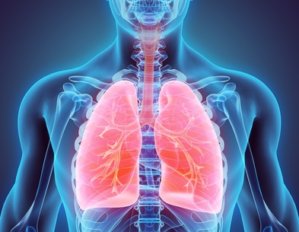 Tuberculosis is one of the most common diseases in the world and costs millions of lives, especially in the underdeveloped countries. Tuberculosis typically goes hand in hand with malnutrition, and now a group of scientists from Dublin in Ireland has found that vitamin A helps the lungs’ immune defense fight the disease. Their research is published in the esteemed Journal of Respiratory Cell and Molecular Biology.
Tuberculosis is one of the most common diseases in the world and costs millions of lives, especially in the underdeveloped countries. Tuberculosis typically goes hand in hand with malnutrition, and now a group of scientists from Dublin in Ireland has found that vitamin A helps the lungs’ immune defense fight the disease. Their research is published in the esteemed Journal of Respiratory Cell and Molecular Biology.
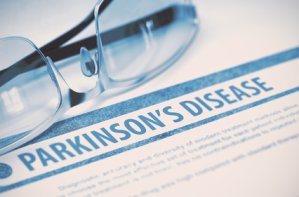 A new study shows that patients with early stages of Parkinson’s disease may benefit from getting more vitamin B3 from their diet or from supplements. This is because the nutrient supports cellular energy turnover and helps repair damaged nerve cell DNA. It is vital to get sufficient amounts of vitamin B3 as part of the prevention of the much-dreaded disease.
A new study shows that patients with early stages of Parkinson’s disease may benefit from getting more vitamin B3 from their diet or from supplements. This is because the nutrient supports cellular energy turnover and helps repair damaged nerve cell DNA. It is vital to get sufficient amounts of vitamin B3 as part of the prevention of the much-dreaded disease.
 Intensive care units in hospitals offer treatment for critically ill patients, who are monitored and receive specialist care around the clock. It goes without saying that this type of medical attention is associated with both suffering and comes with a huge price tag. A whole new meta-analysis has shown that vitamin C supplementation is an inexpensive way to shorten the duration of intensive care hospitalization by eight percent. The reason is that vitamin C has a host of important functions in the body, including an ability to speed up the healing process.
Intensive care units in hospitals offer treatment for critically ill patients, who are monitored and receive specialist care around the clock. It goes without saying that this type of medical attention is associated with both suffering and comes with a huge price tag. A whole new meta-analysis has shown that vitamin C supplementation is an inexpensive way to shorten the duration of intensive care hospitalization by eight percent. The reason is that vitamin C has a host of important functions in the body, including an ability to speed up the healing process.
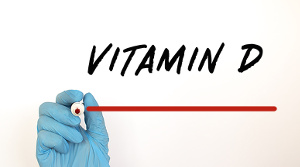 Vitamin D is essential for the immune defense but many of us are deficient of the nutrient during the dark winter period. The Danish Veterinary and Food Administration therefore recommends for everyone to take a vitamin D supplement in the winter months and that vulnerable population groups supplement all year round. Many people are unaware that being vitamin D-deficient contributes to new waves of COVID-19 and other types of viruses while increasing the risk of infections becoming complicated and life-threatening. This was demonstrated in multiple studies that have been published over the past 18 months. Leading scientists call for immediate action in terms of optimizing vitamin D levels in the population to help fight COVID-19 and other virus infections, simply because vaccines only have limited effect.
Vitamin D is essential for the immune defense but many of us are deficient of the nutrient during the dark winter period. The Danish Veterinary and Food Administration therefore recommends for everyone to take a vitamin D supplement in the winter months and that vulnerable population groups supplement all year round. Many people are unaware that being vitamin D-deficient contributes to new waves of COVID-19 and other types of viruses while increasing the risk of infections becoming complicated and life-threatening. This was demonstrated in multiple studies that have been published over the past 18 months. Leading scientists call for immediate action in terms of optimizing vitamin D levels in the population to help fight COVID-19 and other virus infections, simply because vaccines only have limited effect.
- which is involved in asthma, rheumatoid arthritis and most chronic diseases
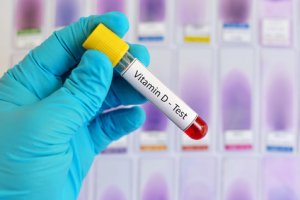 This time of year, many people suffer from asthma, aching joints, or an exacerbation of other chronic diseases that involve inflammation. This is often because they lack vitamin D, as the sun sits too low in the sky for us humans to be able to synthesize the vitamin. Also, the diet and normal vitamin pills only provide minimal amounts vitamin D. It has been known for a long time that vitamin D counteracts inflammation. Now, a large systematic study is planned to investigate how supplementing with large quantities of vitamin D can affect the molecular mechanisms that counteract inflammation.
This time of year, many people suffer from asthma, aching joints, or an exacerbation of other chronic diseases that involve inflammation. This is often because they lack vitamin D, as the sun sits too low in the sky for us humans to be able to synthesize the vitamin. Also, the diet and normal vitamin pills only provide minimal amounts vitamin D. It has been known for a long time that vitamin D counteracts inflammation. Now, a large systematic study is planned to investigate how supplementing with large quantities of vitamin D can affect the molecular mechanisms that counteract inflammation.
 It is hardly a coincidence that so many of us contract virus infections in the course of the winter. It is because we lack vitamin D, which we are unable to synthesize when the sun sits too low in the sky. Danish scientists have discovered how vitamin D activates the immune system, and a comprehensive meta-analysis shows how vitamin D supplements can prevent colds, flus, and related complications.
It is hardly a coincidence that so many of us contract virus infections in the course of the winter. It is because we lack vitamin D, which we are unable to synthesize when the sun sits too low in the sky. Danish scientists have discovered how vitamin D activates the immune system, and a comprehensive meta-analysis shows how vitamin D supplements can prevent colds, flus, and related complications.
- and may save the lives of many weak and older people
 Supplementing with high doses of vitamin D may lower the rate of acute airway infections by up to 40 per cent. This simple trick may have the potential to save millions of lives, as many older people, cancer patients and others people with impaired resistance die of pneumonia.
Supplementing with high doses of vitamin D may lower the rate of acute airway infections by up to 40 per cent. This simple trick may have the potential to save millions of lives, as many older people, cancer patients and others people with impaired resistance die of pneumonia.
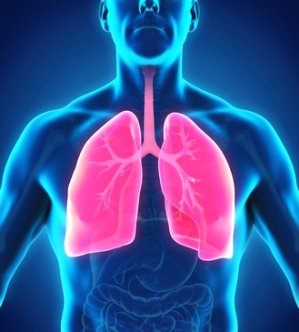 According to a Cochrane review, supplementing asthma medication with vitamin D may halve the risk of having a severe asthma attack and improve quality of life for those who suffer from this condition.
According to a Cochrane review, supplementing asthma medication with vitamin D may halve the risk of having a severe asthma attack and improve quality of life for those who suffer from this condition.
- that cause many sick days and even deaths
 Vitamin D supplements prevent colds, influenza, and intercurrent complications. This was seen in a large meta-analysis emphasizing that vitamin D is not only important for bone health but also for the immune system, which may require larger quantities. Because many old people or weakened individuals die of pneumonia, supplementing with vitamin D may potentially save millions of lives.
Vitamin D supplements prevent colds, influenza, and intercurrent complications. This was seen in a large meta-analysis emphasizing that vitamin D is not only important for bone health but also for the immune system, which may require larger quantities. Because many old people or weakened individuals die of pneumonia, supplementing with vitamin D may potentially save millions of lives.
 Most cells in the body have receptors for vitamin D, a nutrient that works as a steroid hormone. The different immune cells in the body are particularly dependent on vitamin D. Not only is this important for our ability to fight infections, but it also helps the body regulate inflammatory processes, which are the common thread in most chronic diseases and in ageing, according to a study that is published in Nutrients. The authors, Professor Carten Carlberg and Dr. Eunike Velleur, two of the world’s leading experts on vitamin D, explain why we need much more vitamin D than officially recommended when it comes fighting age.
Most cells in the body have receptors for vitamin D, a nutrient that works as a steroid hormone. The different immune cells in the body are particularly dependent on vitamin D. Not only is this important for our ability to fight infections, but it also helps the body regulate inflammatory processes, which are the common thread in most chronic diseases and in ageing, according to a study that is published in Nutrients. The authors, Professor Carten Carlberg and Dr. Eunike Velleur, two of the world’s leading experts on vitamin D, explain why we need much more vitamin D than officially recommended when it comes fighting age.
 Lack of vitamin E increases your risk of fertility problems, atherosclerosis, blood clots, and Alzheimer's disease. The diet contains eight different forms of vitamin E. The vitamin is also available in supplement form, either as natural or synthetic vitamin E, and there are huge differences in terms of their effect.
Lack of vitamin E increases your risk of fertility problems, atherosclerosis, blood clots, and Alzheimer's disease. The diet contains eight different forms of vitamin E. The vitamin is also available in supplement form, either as natural or synthetic vitamin E, and there are huge differences in terms of their effect.
and can antioxidants prevent it?
 Overweight often leads to type-2 diabetes and the early stage of the condition known as insulin resistance. A new scientific study suggests that oxidative damage, also known as oxidative stress, sets the stage for these disturbances in the body's sugar and lipid metabolism. The doctors behind this study therefore theorize that it is possible to prevent type-2 diabetes with antioxidants that are known to counteract oxidative stress.
Overweight often leads to type-2 diabetes and the early stage of the condition known as insulin resistance. A new scientific study suggests that oxidative damage, also known as oxidative stress, sets the stage for these disturbances in the body's sugar and lipid metabolism. The doctors behind this study therefore theorize that it is possible to prevent type-2 diabetes with antioxidants that are known to counteract oxidative stress.
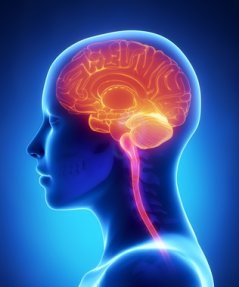 Vitamin C is extremely important for the brain’s blood vessels, nerve cells, neurotransmitters, and connective tissue. An estimated 10 percent of the adult population is vitamin C deficient without specific symptoms. According to a scientific article in the Danish journal Aktuel Videnskab, vitamin C deficiency during pregnancy may harm brain development in the fetus.
Vitamin C is extremely important for the brain’s blood vessels, nerve cells, neurotransmitters, and connective tissue. An estimated 10 percent of the adult population is vitamin C deficient without specific symptoms. According to a scientific article in the Danish journal Aktuel Videnskab, vitamin C deficiency during pregnancy may harm brain development in the fetus.
 Zinc strengthens the immune defense and controls inflammatory conditions such as eczema. According to a Finnish meta-analysis, high-dosed zinc supplements can help the immune defense fight a regular cold much faster. It turns out that there are widespread zinc deficiencies. First of all, sugar, birth control pills, inorganic iron supplements, and normal ageing processes impair the body’s zinc uptake. Secondly, it may be difficult to get enough zinc if you are on a vegetarian or vegan diet. Not only does a zinc deficiency have a negative effect on your immune defense and skin health, it also upsets the countless enzymatic processes in which zinc is involved.
Zinc strengthens the immune defense and controls inflammatory conditions such as eczema. According to a Finnish meta-analysis, high-dosed zinc supplements can help the immune defense fight a regular cold much faster. It turns out that there are widespread zinc deficiencies. First of all, sugar, birth control pills, inorganic iron supplements, and normal ageing processes impair the body’s zinc uptake. Secondly, it may be difficult to get enough zinc if you are on a vegetarian or vegan diet. Not only does a zinc deficiency have a negative effect on your immune defense and skin health, it also upsets the countless enzymatic processes in which zinc is involved.
- that is the common thread in most chronic diseases
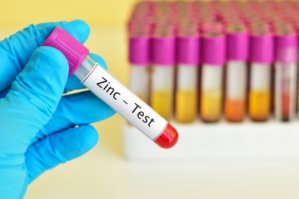 Lack of dietary zinc may disrupt the immune defense and increase your risk of inflammation, which is the common thread in most diseases such as eczema, rheumatism, diabetes, and cancer. Zinc’s underlying mechanisms used to be relatively unknown, but a new study published in the science journal Immunology shows that zinc regulates the white blood cells of the immune system plus the formation of various proteins that are important for controlling inflammatory processes. Unfortunately, zinc deficiencies are widespread for a number of reasons.
Lack of dietary zinc may disrupt the immune defense and increase your risk of inflammation, which is the common thread in most diseases such as eczema, rheumatism, diabetes, and cancer. Zinc’s underlying mechanisms used to be relatively unknown, but a new study published in the science journal Immunology shows that zinc regulates the white blood cells of the immune system plus the formation of various proteins that are important for controlling inflammatory processes. Unfortunately, zinc deficiencies are widespread for a number of reasons.
 The mineral zinc has demonstrated a surprising ability to help the liver fight virus infections and prevent tissue damage caused by chronic liver diseases. By regulating a specific protein, zinc both strengthens the immune defense and counteracts undesirable inflammation. This was shown in a new Australian study headed by scientists from Westmead Institute for Medical Research.
The mineral zinc has demonstrated a surprising ability to help the liver fight virus infections and prevent tissue damage caused by chronic liver diseases. By regulating a specific protein, zinc both strengthens the immune defense and counteracts undesirable inflammation. This was shown in a new Australian study headed by scientists from Westmead Institute for Medical Research.
It also turns out that minor to moderate zinc deficiencies are rather common. Most importantly, sugar, birth control pills, inorganic iron supplements, and ageing processes impair the body’s ability to absorb zinc. Moreover, it is often difficult to get enough zinc from vegetarian and vegan diets. Being zinc-deficient takes its toll on the immune system and the liver, but also has a negative impact on the countless enzyme processes that involve zinc.
- and provide other benefits
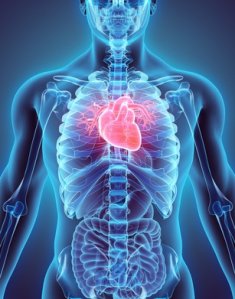 Zinc is a trace element that is necessary for around 300 enzymes that control the thyroid gland, fertility, the nervous system, the immune system, and a number of other functions. A team of scientists from the Technical University of Munich (TUM) has found a close link between the body’s zinc status and cardiac function. Although clinical zinc deficiencies are rare, short-term subclinical zinc deficiencies are more widespread than previously thought. Even a minor zinc deficiency may affect cardiac health and the countless enzyme processes that depend on the presence of zinc. Besides, zinc is a powerful antioxidant that protects cells against oxidative stress. There are many reasons why it is important to get enough of this nutrient.
Zinc is a trace element that is necessary for around 300 enzymes that control the thyroid gland, fertility, the nervous system, the immune system, and a number of other functions. A team of scientists from the Technical University of Munich (TUM) has found a close link between the body’s zinc status and cardiac function. Although clinical zinc deficiencies are rare, short-term subclinical zinc deficiencies are more widespread than previously thought. Even a minor zinc deficiency may affect cardiac health and the countless enzyme processes that depend on the presence of zinc. Besides, zinc is a powerful antioxidant that protects cells against oxidative stress. There are many reasons why it is important to get enough of this nutrient.
 According to the statistics, far too many patients contract an infection while being hospitalized in a Danish hospital. This has enormous human and economic costs that need to be addressed. Hospital infections are not only a consequence of poor hygiene, it actually turns out that 40 percent of the patients are malnourished to some degree, which impairs their immune system and makes them an easier target for infections. Lack of vitamin C, vitamin D, selenium, zinc, and iron seem to be the big and overlooked problem.
According to the statistics, far too many patients contract an infection while being hospitalized in a Danish hospital. This has enormous human and economic costs that need to be addressed. Hospital infections are not only a consequence of poor hygiene, it actually turns out that 40 percent of the patients are malnourished to some degree, which impairs their immune system and makes them an easier target for infections. Lack of vitamin C, vitamin D, selenium, zinc, and iron seem to be the big and overlooked problem.







 Magnesium is important for numerous physiological functions. In a new review article published in Nutrients, researchers have looked at the relation between the body’s magnesium levels and a variety of different ageing markers. Also, they hypothesize that optimal intake of magnesium throughout life is an easy and inexpensive way to obtain healthy ageing.
Magnesium is important for numerous physiological functions. In a new review article published in Nutrients, researchers have looked at the relation between the body’s magnesium levels and a variety of different ageing markers. Also, they hypothesize that optimal intake of magnesium throughout life is an easy and inexpensive way to obtain healthy ageing.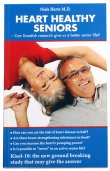

 Stress is a large problem for many people. It is believed that the majority of people who consult their physician do it because of stress-related problems. Many people try to relieve their stress with sweets, coffee, alcohol, painkillers, and sleeping medication just to get through the day. However, in the long run, this can turn into a vicious cycle that increases your risk of disease and faster ageing. There are dozens of books about stress that can be useful for solving problems and slowing down your pace, but don’t forget that stress is also physiological. It is a condition that deteriorates tissues, burdens the body with free radicals and increases your need for B-vitamins, vitamin C, magnesium, selenium and coenzyme Q10. If you make sure to get the necessary essential nutrients before it is too late, you can cope with more.
Stress is a large problem for many people. It is believed that the majority of people who consult their physician do it because of stress-related problems. Many people try to relieve their stress with sweets, coffee, alcohol, painkillers, and sleeping medication just to get through the day. However, in the long run, this can turn into a vicious cycle that increases your risk of disease and faster ageing. There are dozens of books about stress that can be useful for solving problems and slowing down your pace, but don’t forget that stress is also physiological. It is a condition that deteriorates tissues, burdens the body with free radicals and increases your need for B-vitamins, vitamin C, magnesium, selenium and coenzyme Q10. If you make sure to get the necessary essential nutrients before it is too late, you can cope with more. It is not the actual COVID-19 virus that can become lethal. It is the immune system’s overreaction with hyperinflammation and a storm of cytokines that destroys healthy tissue in the lungs, the cardiovascular system, and other places in the body, according to a new article that is published in The Lancet. The capacity of the immune system determines if an infection like COVID-19 is either harmless or life-threatening. For that reason, hygienic measures, masks, isolation, and delayed vaccines are not sufficient. We also need to bolster our immune system against COVID-19 and other pandemics that may occur in the future. Let’s look closer at vitamin C, vitamin D, selenium and zinc, all of which are essential for preventing a well-functioning immune system from going off its rails. What is also worth mentioning is that many people lack these nutrients, especially older people and other exposed groups.
It is not the actual COVID-19 virus that can become lethal. It is the immune system’s overreaction with hyperinflammation and a storm of cytokines that destroys healthy tissue in the lungs, the cardiovascular system, and other places in the body, according to a new article that is published in The Lancet. The capacity of the immune system determines if an infection like COVID-19 is either harmless or life-threatening. For that reason, hygienic measures, masks, isolation, and delayed vaccines are not sufficient. We also need to bolster our immune system against COVID-19 and other pandemics that may occur in the future. Let’s look closer at vitamin C, vitamin D, selenium and zinc, all of which are essential for preventing a well-functioning immune system from going off its rails. What is also worth mentioning is that many people lack these nutrients, especially older people and other exposed groups. According to a new study from Johns Hopkins University in the United States, vitamin D is able to protect overweight children against asthma caused by urban air pollution. Sunshine during the summer period is the main source of vitamin D, but due to our modern lifestyles, many people, including children, fail to get enough of the nutrient. This may have widespread consequences, as lack of vitamin D also increases the risk of overweight.
According to a new study from Johns Hopkins University in the United States, vitamin D is able to protect overweight children against asthma caused by urban air pollution. Sunshine during the summer period is the main source of vitamin D, but due to our modern lifestyles, many people, including children, fail to get enough of the nutrient. This may have widespread consequences, as lack of vitamin D also increases the risk of overweight. Professor Maret Traber from the Linus Pauling Institute in the United States has studied vitamin E for a number of years. Traber, in a review article, looked at the most recent science concerning this important, lipid-soluble nutrient. Judging from her work, it looks as if we only need the form of vitamin E called alfa-tocopherol.
Professor Maret Traber from the Linus Pauling Institute in the United States has studied vitamin E for a number of years. Traber, in a review article, looked at the most recent science concerning this important, lipid-soluble nutrient. Judging from her work, it looks as if we only need the form of vitamin E called alfa-tocopherol. We all know the importance of eating a healthy diet, exercising, getting sufficient sleep, and sunbathing with caution. Still, life is not always that simple, and even if we stick with the official guidelines for healthy living, it can often be challenging to get adequate amounts of the essential nutrients. Nonetheless, supplements are useful as compensation for these shortcomings. In fact, the use of such products can be compared with plant fertilizers that make plants look healthy, flourish and thrive
We all know the importance of eating a healthy diet, exercising, getting sufficient sleep, and sunbathing with caution. Still, life is not always that simple, and even if we stick with the official guidelines for healthy living, it can often be challenging to get adequate amounts of the essential nutrients. Nonetheless, supplements are useful as compensation for these shortcomings. In fact, the use of such products can be compared with plant fertilizers that make plants look healthy, flourish and thrive Blood levels of vitamin D serve as an early indicator of future health problems such as cardiovascular disease, osteoporosis, and cancer, according to a review article that was presented recently to the European Society of Endocrinology. Lack of vitamin D is rather common and a threat to public health, which is why the scientists suggest measuring levels of total vitamin D and free vitamin D in the blood. By optimizing levels of the nutrient in the blood it is possible to prevent a host of different lifestyle diseases as well as early death. It is not enough just to take any random vitamin D supplement. It must contain the right dose and have good absorption in order to be able to optimize vitamin D levels in the blood.
Blood levels of vitamin D serve as an early indicator of future health problems such as cardiovascular disease, osteoporosis, and cancer, according to a review article that was presented recently to the European Society of Endocrinology. Lack of vitamin D is rather common and a threat to public health, which is why the scientists suggest measuring levels of total vitamin D and free vitamin D in the blood. By optimizing levels of the nutrient in the blood it is possible to prevent a host of different lifestyle diseases as well as early death. It is not enough just to take any random vitamin D supplement. It must contain the right dose and have good absorption in order to be able to optimize vitamin D levels in the blood. COVID-19 represents a serious global threat against public health and the economy because we still lack a vaccine and effective therapies. When COVID-19 becomes life-threatening it is primarily because the immune defense overreacts with a cytokine storm and hyperinflammation that destroys healthy tissue in the lungs, the circulatory system, and other places. Older people and heart failure patients already suffer from chronic low-grade, uncontrolled inflammation, to which nutrient deficiencies contribute and make the patients increasingly vulnerable. This also applies to people with metabolic syndrome and diabetes, many of which are overweight. For that reason, scientists affiliated with universities and research centers in Norway, Sweden, and Russia have searched the scientific literature to find studies that focus on whether supplementation with vitamin D, selenium, and zinc can help prevent a COVID-19 infection from escalating and becoming life-threatening.
COVID-19 represents a serious global threat against public health and the economy because we still lack a vaccine and effective therapies. When COVID-19 becomes life-threatening it is primarily because the immune defense overreacts with a cytokine storm and hyperinflammation that destroys healthy tissue in the lungs, the circulatory system, and other places. Older people and heart failure patients already suffer from chronic low-grade, uncontrolled inflammation, to which nutrient deficiencies contribute and make the patients increasingly vulnerable. This also applies to people with metabolic syndrome and diabetes, many of which are overweight. For that reason, scientists affiliated with universities and research centers in Norway, Sweden, and Russia have searched the scientific literature to find studies that focus on whether supplementation with vitamin D, selenium, and zinc can help prevent a COVID-19 infection from escalating and becoming life-threatening. Migraines may be caused by a number of things and cannot be cured as such. A variety of medications have been designed specifically to treat migraines and, in addition, certain drugs that are commonly used to treat other disorders may even help relieve or prevent migraines. However, an increasing number of migraine sufferers seek more natural ways to deal with their recurrent migraine attacks and one remedy that has attracted a substantial amount of interest is the vitamin-like compound coenzyme Q10.
Migraines may be caused by a number of things and cannot be cured as such. A variety of medications have been designed specifically to treat migraines and, in addition, certain drugs that are commonly used to treat other disorders may even help relieve or prevent migraines. However, an increasing number of migraine sufferers seek more natural ways to deal with their recurrent migraine attacks and one remedy that has attracted a substantial amount of interest is the vitamin-like compound coenzyme Q10. Apparently so. According to a new study, vitamin B3 (niacin) is a powerful antioxidant that, by means of enzyme processes, protects the body against aging and diseases caused by oxidative stress.
Apparently so. According to a new study, vitamin B3 (niacin) is a powerful antioxidant that, by means of enzyme processes, protects the body against aging and diseases caused by oxidative stress. It is only natural to expect a nutritional supplement to be absorbed and deliver an effect. However, for this to happen, you must look for products with documentation. Countless multivitamin products and supplements with Q10, selenium, chromium, magnesium, and iron have very poor quality and are not properly absorbed. Our ageing process alone impairs the uptake of vitamins and minerals, and the same is the case if we lack essential fats, have too high calcium levels, or use antacids and other types of medicine – so this also needs to be taken into account.
It is only natural to expect a nutritional supplement to be absorbed and deliver an effect. However, for this to happen, you must look for products with documentation. Countless multivitamin products and supplements with Q10, selenium, chromium, magnesium, and iron have very poor quality and are not properly absorbed. Our ageing process alone impairs the uptake of vitamins and minerals, and the same is the case if we lack essential fats, have too high calcium levels, or use antacids and other types of medicine – so this also needs to be taken into account. Every day, the intestinal immune system has to defend itself against hordes of microbes and toxins. If it fails to function optimally, there is an increased risk of infections, allergies, and inflammatory diseases. More and more research reveals that essential nutrients help to control the intestinal immune defense. Also, new research shows how important a well-functioning immune system is for our digestion and health in general. This article takes a closer look at the vitamins that are known to be particularly important for the intestinal immune system. Another thing that is vital is to have adequate amounts of gastric juice.
Every day, the intestinal immune system has to defend itself against hordes of microbes and toxins. If it fails to function optimally, there is an increased risk of infections, allergies, and inflammatory diseases. More and more research reveals that essential nutrients help to control the intestinal immune defense. Also, new research shows how important a well-functioning immune system is for our digestion and health in general. This article takes a closer look at the vitamins that are known to be particularly important for the intestinal immune system. Another thing that is vital is to have adequate amounts of gastric juice. Climate changes and soil depletion increase the risk of selenium deficiency, especially in Europe as shown by Swiss scientists. Selenium is an essential nutrient, and existing studies clearly show that low selenium intake increases the risk of cancer, metabolic disorders, impaired immunity, poor sperm quality, and atherosclerosis. Selenium deficiencies are therefore to be taken seriously and should be prevented one way or another. A good way to get enough of the nutrient is by taking a high-quality selenium supplement.
Climate changes and soil depletion increase the risk of selenium deficiency, especially in Europe as shown by Swiss scientists. Selenium is an essential nutrient, and existing studies clearly show that low selenium intake increases the risk of cancer, metabolic disorders, impaired immunity, poor sperm quality, and atherosclerosis. Selenium deficiencies are therefore to be taken seriously and should be prevented one way or another. A good way to get enough of the nutrient is by taking a high-quality selenium supplement. The coronavirus has spread from Wuhan in China to a number of continents, where it has caused massive fear and affected daily life and the global economy. Although most people that get the infection experience a mild course of events, the greatest fear is the potentially life-threatening complications in the respiratory system caused by oxidative stress, which have already taken thousands of human lives. Chinese scientists now call for early intravenous therapy with large doses of vitamin C to prevent oxidative stress and the life-threatening complications that follow in the wake of a derailed immune system. Many researchers also claim that higher intake of vitamin C from dietary sources or supplements help prevent by boosting and regulating the immune system in the upper respiratory tract. The same goes for vitamin D and selenium.
The coronavirus has spread from Wuhan in China to a number of continents, where it has caused massive fear and affected daily life and the global economy. Although most people that get the infection experience a mild course of events, the greatest fear is the potentially life-threatening complications in the respiratory system caused by oxidative stress, which have already taken thousands of human lives. Chinese scientists now call for early intravenous therapy with large doses of vitamin C to prevent oxidative stress and the life-threatening complications that follow in the wake of a derailed immune system. Many researchers also claim that higher intake of vitamin C from dietary sources or supplements help prevent by boosting and regulating the immune system in the upper respiratory tract. The same goes for vitamin D and selenium. It has already been documented that the widespread problems with vitamin D deficiency increase the risk of being infected with COVID-19 and developing life-threatening complications. In a new study, a team of Turkish scientists has demonstrated that swift treatment with vitamin D can shorten the length of hospital stays plus reduce mortality risk by 50 percent. What’s more, it even has a positive effect on comorbidity. Vitamin D deficiencies are especially common during the winter period and among seniors, people of color, overweight individuals, diabetics, and other vulnerable groups. This makes the study results very relevant, especially when you consider the fact that vaccines only have a limited effect.
It has already been documented that the widespread problems with vitamin D deficiency increase the risk of being infected with COVID-19 and developing life-threatening complications. In a new study, a team of Turkish scientists has demonstrated that swift treatment with vitamin D can shorten the length of hospital stays plus reduce mortality risk by 50 percent. What’s more, it even has a positive effect on comorbidity. Vitamin D deficiencies are especially common during the winter period and among seniors, people of color, overweight individuals, diabetics, and other vulnerable groups. This makes the study results very relevant, especially when you consider the fact that vaccines only have a limited effect. Magnesium is involved in hundreds of chemical reactions in the body, including the activation of vitamin D that we synthesize from sun exposure or take in supplement form. For that reason, magnesium is essential for the immune defense and its ability to fight COVID-19. Moreover, low magnesium levels in the body can foreshadow complications in connection with a COVID-19 infection, according to a study that is published in Nutrients. The scientists therefore say that it is relevant to measure hospitalized patients’ magnesium levels and correct any deficiencies. Many people, especially older individuals, get too little magnesium from their diets, and several types of medicine can impair the uptake and utilization of the nutrient.
Magnesium is involved in hundreds of chemical reactions in the body, including the activation of vitamin D that we synthesize from sun exposure or take in supplement form. For that reason, magnesium is essential for the immune defense and its ability to fight COVID-19. Moreover, low magnesium levels in the body can foreshadow complications in connection with a COVID-19 infection, according to a study that is published in Nutrients. The scientists therefore say that it is relevant to measure hospitalized patients’ magnesium levels and correct any deficiencies. Many people, especially older individuals, get too little magnesium from their diets, and several types of medicine can impair the uptake and utilization of the nutrient. Vitamin D is of vital importance to a well-functioning immune defense and it protects against virus infections. This has been confirmed by Denmark’s infection control agency, Statens Serum Institut, and researchers from Harvard University in Boston, USA. In a study, the Danish and American scientists found that having low levels of vitamin D in the blood is associated with a greater risk of severe disease outcome in patients with COVID-19.
Vitamin D is of vital importance to a well-functioning immune defense and it protects against virus infections. This has been confirmed by Denmark’s infection control agency, Statens Serum Institut, and researchers from Harvard University in Boston, USA. In a study, the Danish and American scientists found that having low levels of vitamin D in the blood is associated with a greater risk of severe disease outcome in patients with COVID-19. Vitamin B6 is important for energy levels, the nervous system, our mood, our immune system, our hormone balance, and a number of other functions. This vitamin is of vital importance to our physical and mental well-being but a variety of factors may lead to a deficiency. This article will provide you with information about vitamin B6 and the 11 different symptoms that a deficiency may cause.
Vitamin B6 is important for energy levels, the nervous system, our mood, our immune system, our hormone balance, and a number of other functions. This vitamin is of vital importance to our physical and mental well-being but a variety of factors may lead to a deficiency. This article will provide you with information about vitamin B6 and the 11 different symptoms that a deficiency may cause.
 A new study shows that adding eggs to your mixed salad increases the uptake of vitamin E from the vegetables, so don’t let your fear of fat and cholesterol keep you from consuming eggs. Eggs (yoke and white) contain a multitude of nutrients that are beneficial for your cardiovascular system and blood sugar.
A new study shows that adding eggs to your mixed salad increases the uptake of vitamin E from the vegetables, so don’t let your fear of fat and cholesterol keep you from consuming eggs. Eggs (yoke and white) contain a multitude of nutrients that are beneficial for your cardiovascular system and blood sugar. It is commonly known that vitamin A is good for your vision, but most people are unaware that we also need specific nutrients in order for our hearing to function optimally. In this connection, age-related hearing loss is not necessarily linked to mechanical dysfunctions of the ear but rather to how the brain processes the sound information.
It is commonly known that vitamin A is good for your vision, but most people are unaware that we also need specific nutrients in order for our hearing to function optimally. In this connection, age-related hearing loss is not necessarily linked to mechanical dysfunctions of the ear but rather to how the brain processes the sound information. According to a new study that is published in the British Journal of Nutrition, even minor zinc deficiencies may cause poor digestion, skin problems, and fatigue - and lead to numerous other health problems in the long run. You should therefore avoid zinc shortages, and people with poor diets, vegans, vegetarians, and older people should make sure to get enough zinc.
According to a new study that is published in the British Journal of Nutrition, even minor zinc deficiencies may cause poor digestion, skin problems, and fatigue - and lead to numerous other health problems in the long run. You should therefore avoid zinc shortages, and people with poor diets, vegans, vegetarians, and older people should make sure to get enough zinc. Modern man is exposed to a lot of free radicals because of factors like stress, environmental toxins, etc. Free radicals are like “internal terrorists” that contribute to atherosclerosis, diabetes, Alzheimer’s disease, cancer, and a host of other diseases. Our only protection against free radicals are antioxidants from vitamins, minerals, and plant compounds. Antioxidants work in different ways. Being deficient in a single primary antioxidant such as selenium may leave the body vulnerable to oxidative stress and disease. What most people are unaware of is that free radicals are also essential, as they are a part of our energy turnover and immune defense. The question is how do we protect ourselves the best against infections, oxidative stress, and disease? What type of antioxidant do we get from dark chocolate, green tea, coffee and red wine? How does redox therapy with vitamin C in great quantities work on cancer patients? You can read more about these topics in the following.
Modern man is exposed to a lot of free radicals because of factors like stress, environmental toxins, etc. Free radicals are like “internal terrorists” that contribute to atherosclerosis, diabetes, Alzheimer’s disease, cancer, and a host of other diseases. Our only protection against free radicals are antioxidants from vitamins, minerals, and plant compounds. Antioxidants work in different ways. Being deficient in a single primary antioxidant such as selenium may leave the body vulnerable to oxidative stress and disease. What most people are unaware of is that free radicals are also essential, as they are a part of our energy turnover and immune defense. The question is how do we protect ourselves the best against infections, oxidative stress, and disease? What type of antioxidant do we get from dark chocolate, green tea, coffee and red wine? How does redox therapy with vitamin C in great quantities work on cancer patients? You can read more about these topics in the following. Zinc supplements help your immune defense fight colds faster. This was seen in a Finnish meta-analysis where the majority of cold-ridden subjects who took supplements had recovered from their colds after five days, as opposed to those who did not take extra zinc. It is important to choose high-quality zinc supplements, which the body is able to absorb. Moreover, it is vital that the dose is sufficiently high during those days where the immune system actively fights the cold. High-dosed zinc supplementation is not encouraged for therapeutic use in other cases.
Zinc supplements help your immune defense fight colds faster. This was seen in a Finnish meta-analysis where the majority of cold-ridden subjects who took supplements had recovered from their colds after five days, as opposed to those who did not take extra zinc. It is important to choose high-quality zinc supplements, which the body is able to absorb. Moreover, it is vital that the dose is sufficiently high during those days where the immune system actively fights the cold. High-dosed zinc supplementation is not encouraged for therapeutic use in other cases. Lack of vitamin D and selenium increases your risk of catching a cold or the flu or accompanying complications. Many people resort to Echinacea, ginger, and smoothies filled to the rim with vitamin C and secondary immune compounds, but these measures can never replace the two essential nutrients, selenium and vitamin D.
Lack of vitamin D and selenium increases your risk of catching a cold or the flu or accompanying complications. Many people resort to Echinacea, ginger, and smoothies filled to the rim with vitamin C and secondary immune compounds, but these measures can never replace the two essential nutrients, selenium and vitamin D.
 Blood poisoning, also called sepsis, is a life-threatening condition that requires immediate medical attention. A combination of high-dosed, intravenously administered vitamin C may, however, shorten the hospital stay and lower the risk of dying, according to a study that is published in Journal of the American Medical Association. The study supports earlier research where a combination of intravenous vitamin C and vitamin B1 delivered even better results. These are simple and inexpensive therapies that can save lives by supporting the immune system and limiting damage to the cardiovascular system, the lungs, and other tissues.
Blood poisoning, also called sepsis, is a life-threatening condition that requires immediate medical attention. A combination of high-dosed, intravenously administered vitamin C may, however, shorten the hospital stay and lower the risk of dying, according to a study that is published in Journal of the American Medical Association. The study supports earlier research where a combination of intravenous vitamin C and vitamin B1 delivered even better results. These are simple and inexpensive therapies that can save lives by supporting the immune system and limiting damage to the cardiovascular system, the lungs, and other tissues. Chronic fatigue commonly follows in the wake of influenza, herpes, COVID-19, and other infections. The immune system does not function optimally, and the tiredness is caused by oxidative stress and inflammation. The condition is often accompanied by poor concentration, depression, and sleep disturbances. Oxidative stress is an imbalance between pro-inflammatory free radicals and protective antioxidants. Vitamin C happens to be one of the most potent antioxidants, and intravenous vitamin C therapy has been shown to reduce tiredness that follows after different types of virus infections, according to a review article in the scientific journal Nutrients. Here, the scientists also write about intravenous vitamin C therapy in connection with chronic fatigue syndrome following COVID-19 infections.
Chronic fatigue commonly follows in the wake of influenza, herpes, COVID-19, and other infections. The immune system does not function optimally, and the tiredness is caused by oxidative stress and inflammation. The condition is often accompanied by poor concentration, depression, and sleep disturbances. Oxidative stress is an imbalance between pro-inflammatory free radicals and protective antioxidants. Vitamin C happens to be one of the most potent antioxidants, and intravenous vitamin C therapy has been shown to reduce tiredness that follows after different types of virus infections, according to a review article in the scientific journal Nutrients. Here, the scientists also write about intravenous vitamin C therapy in connection with chronic fatigue syndrome following COVID-19 infections. Minerals are involved in countless functions of vital importance to the immune defense. That is why lack of one or several minerals can increase your risk of infections or perhaps trigger unwanted inflammation that can damage healthy tissue. In a new review article that is published in Nutrients, a group of scientists look at magnesium, selenium, zinc, iron, and copper and their role in the immune system. They also look at the fact that vegans, older people, chronically ill, pregnant women, and elite athletes often have nutrient deficiencies that call for supplementation. The agricultural soil in Europe and many other parts of the world is selenium-depleted, which makes it challenging to get enough selenium from our diets. But it is also important not to overdose on minerals. In this article, you can read more about how to optimize your nutrient intake for your immune health.
Minerals are involved in countless functions of vital importance to the immune defense. That is why lack of one or several minerals can increase your risk of infections or perhaps trigger unwanted inflammation that can damage healthy tissue. In a new review article that is published in Nutrients, a group of scientists look at magnesium, selenium, zinc, iron, and copper and their role in the immune system. They also look at the fact that vegans, older people, chronically ill, pregnant women, and elite athletes often have nutrient deficiencies that call for supplementation. The agricultural soil in Europe and many other parts of the world is selenium-depleted, which makes it challenging to get enough selenium from our diets. But it is also important not to overdose on minerals. In this article, you can read more about how to optimize your nutrient intake for your immune health. Many people take a multivitamin this time of year. However, even if the manufacturers really squeeze together the ingredients it is impossible to put enough vitamins and minerals in one pill to cover our actual needs. In fact, the manufacturing process determines if we are able to absorb the different nutrients in the first place, and that is important for them to work properly in the body. Therefore, it is vital that you choose a supplement that has good quality, and you must make sure to focus on the vitamins, minerals, and essential fatty acids that we humans typically tend to lack.
Many people take a multivitamin this time of year. However, even if the manufacturers really squeeze together the ingredients it is impossible to put enough vitamins and minerals in one pill to cover our actual needs. In fact, the manufacturing process determines if we are able to absorb the different nutrients in the first place, and that is important for them to work properly in the body. Therefore, it is vital that you choose a supplement that has good quality, and you must make sure to focus on the vitamins, minerals, and essential fatty acids that we humans typically tend to lack. Vitamin D comes in different forms that all need magnesium to be activated in order for the vitamin to be able to benefit all the cells and tissues in the body. Unfortunately, many people lack magnesium, and that makes vitamin D ineffective. Vitamin D also increases the uptake of calcium, but with too little magnesium in the organism, the risk of atherosclerosis increases, as does the risk of osteoporosis, impaired immune resistance, and metabolic syndrome (an early stage of type 2 diabetes.) All of this was observed in a study that is published in The Journal of the American Osteopathic Association.
Vitamin D comes in different forms that all need magnesium to be activated in order for the vitamin to be able to benefit all the cells and tissues in the body. Unfortunately, many people lack magnesium, and that makes vitamin D ineffective. Vitamin D also increases the uptake of calcium, but with too little magnesium in the organism, the risk of atherosclerosis increases, as does the risk of osteoporosis, impaired immune resistance, and metabolic syndrome (an early stage of type 2 diabetes.) All of this was observed in a study that is published in The Journal of the American Osteopathic Association. Around one billion people worldwide are believed to lack selenium, mainly due to nutrient-depleted farmland. Selenium deficiency makes us more vulnerable to infections and increases the risk of a virus mutating and becoming more dangerous. This was shown in previous studies of RNA virus that can cause influenza, hepatitis, HIV, and Keshan disease. Coronavirus that causes the common cold and COVID-19 infections also belongs to the group of RNA virus and has a unique ability to mutate. Three new mutated virus types have been found in mink and stand in the way of a future vaccine. Therefore, we are forced to bolster our immune defense, which is designed to attack virus from different angles. Still, even if we eat a healthy diet it can be challenging to get enough selenium, and that is why an increasing number of international researchers now recommend selenium supplements to help fight coronavirus.
Around one billion people worldwide are believed to lack selenium, mainly due to nutrient-depleted farmland. Selenium deficiency makes us more vulnerable to infections and increases the risk of a virus mutating and becoming more dangerous. This was shown in previous studies of RNA virus that can cause influenza, hepatitis, HIV, and Keshan disease. Coronavirus that causes the common cold and COVID-19 infections also belongs to the group of RNA virus and has a unique ability to mutate. Three new mutated virus types have been found in mink and stand in the way of a future vaccine. Therefore, we are forced to bolster our immune defense, which is designed to attack virus from different angles. Still, even if we eat a healthy diet it can be challenging to get enough selenium, and that is why an increasing number of international researchers now recommend selenium supplements to help fight coronavirus. Vitamin D plays an overlooked role in the immune defense. Being deficient of the nutrient increases your risk of bacterial pneumonia by up to 60 percent, according to a large Danish study of 116,000 participants that was carried out by scientists from Herlev Hospital, Gentofte Hospital, and the University of Copenhagen.
Vitamin D plays an overlooked role in the immune defense. Being deficient of the nutrient increases your risk of bacterial pneumonia by up to 60 percent, according to a large Danish study of 116,000 participants that was carried out by scientists from Herlev Hospital, Gentofte Hospital, and the University of Copenhagen. It is hardly a coincidence that sore throats, colds, flus, and related complications such as sinus infections and pneumonia typically circulate during the winter period. They are primarily a result of having low vitamin D levels. During the winter, the sun sits too low in the sky to enable vitamin D synthesis in our skin, and we only have a limited amount of the nutrient stored in the liver. Good hand hygiene, warm soup, garlic, echinacea and other immune-boosting herbs alone will not deal with the problem, as they can never compensate for our lack of essential vitamin D, which the white blood cells of our immune system need in order to silently kill of virus. But how much vitamin D do we need, is it possible to get too much, and which mineral is necessary for activating the vitamin?
It is hardly a coincidence that sore throats, colds, flus, and related complications such as sinus infections and pneumonia typically circulate during the winter period. They are primarily a result of having low vitamin D levels. During the winter, the sun sits too low in the sky to enable vitamin D synthesis in our skin, and we only have a limited amount of the nutrient stored in the liver. Good hand hygiene, warm soup, garlic, echinacea and other immune-boosting herbs alone will not deal with the problem, as they can never compensate for our lack of essential vitamin D, which the white blood cells of our immune system need in order to silently kill of virus. But how much vitamin D do we need, is it possible to get too much, and which mineral is necessary for activating the vitamin? Levels of magnesium in the blood are determining for the immune system’s ability to attack pathogens and cancer cells, according to a new study from the University of Basel and the University Hospital Basel. The scientists have discovered that the T cells of the immune system need magnesium in order to carry out proper attacks. According to the scientists, these results are extremely important because magnesium has a potential role in new immunotherapies targeted at cancer patients. It is generally important to get plenty of magnesium because this nutrient is vital for the body’s calcium distribution and for supporting hundreds of enzyme processes.
Levels of magnesium in the blood are determining for the immune system’s ability to attack pathogens and cancer cells, according to a new study from the University of Basel and the University Hospital Basel. The scientists have discovered that the T cells of the immune system need magnesium in order to carry out proper attacks. According to the scientists, these results are extremely important because magnesium has a potential role in new immunotherapies targeted at cancer patients. It is generally important to get plenty of magnesium because this nutrient is vital for the body’s calcium distribution and for supporting hundreds of enzyme processes. Nowadays, fruit, potatoes, and vegetables in general contain very little vitamin C, and the majority of people fail to eat the recommended amount of these foods, in the first place. Unhealthy diets and lack of vitamin C increase the risk of colds, influenza, and other infections, simply because the immune system consumes large amounts of vitamin C in connection with the first explosive attacks that prevent virus from causing an infection. Vitamin C also has an important role in battling infections and preventing them from dragging on and leading to complications such as bronchitis or pneumonia.
Nowadays, fruit, potatoes, and vegetables in general contain very little vitamin C, and the majority of people fail to eat the recommended amount of these foods, in the first place. Unhealthy diets and lack of vitamin C increase the risk of colds, influenza, and other infections, simply because the immune system consumes large amounts of vitamin C in connection with the first explosive attacks that prevent virus from causing an infection. Vitamin C also has an important role in battling infections and preventing them from dragging on and leading to complications such as bronchitis or pneumonia. Type 2 diabetes and early stages of the disease such as insulin resistance are spreading like a bushfire. The good news is that if you consume many antioxidants from fruit, vegetables, berries, tea, and dark chocolate and limit your intake of alcohol, you can lower your risk diabetes risk. This was shown in a new study that is published in the European journal Diabetologia, which focuses on diabetes research.
Type 2 diabetes and early stages of the disease such as insulin resistance are spreading like a bushfire. The good news is that if you consume many antioxidants from fruit, vegetables, berries, tea, and dark chocolate and limit your intake of alcohol, you can lower your risk diabetes risk. This was shown in a new study that is published in the European journal Diabetologia, which focuses on diabetes research. More than 25 percent of people older than 65 years have low levels of vitamin D in their blood. Deficiencies in vitamin B12, folic acid, and iron are also common. This is the conclusion of a large study that was conducted by scientists from Helmholtz Zentrum in Munich, Germany. The widespread lack of vitamins and minerals among older people is critical, especially because this population group is increasing. The lack of essential nutrients affects the calcium uptake, immune defense, and nervous system among other things, leaving older people increasingly vulnerable to osteoporosis, influenza, dementia, and a host of other diseases that impair quality of life and burden the entire public health sector.
More than 25 percent of people older than 65 years have low levels of vitamin D in their blood. Deficiencies in vitamin B12, folic acid, and iron are also common. This is the conclusion of a large study that was conducted by scientists from Helmholtz Zentrum in Munich, Germany. The widespread lack of vitamins and minerals among older people is critical, especially because this population group is increasing. The lack of essential nutrients affects the calcium uptake, immune defense, and nervous system among other things, leaving older people increasingly vulnerable to osteoporosis, influenza, dementia, and a host of other diseases that impair quality of life and burden the entire public health sector. Cancer researchers from the University of Iowa in the United States have finally clarified how extremely high doses of vitamin C given as infusions are able to kill cancer cells. It turns out that the low levels of the enzyme, catalase, in cancer cells make them vulnerable to vitamin C’s ability to generate free radicals. That way, vitamin C works like a type of chemotherapy, while, at the same time, stimulating normal activity in healthy cells. We are dealing with a treatment that is virtually devoid of side effects.
Cancer researchers from the University of Iowa in the United States have finally clarified how extremely high doses of vitamin C given as infusions are able to kill cancer cells. It turns out that the low levels of the enzyme, catalase, in cancer cells make them vulnerable to vitamin C’s ability to generate free radicals. That way, vitamin C works like a type of chemotherapy, while, at the same time, stimulating normal activity in healthy cells. We are dealing with a treatment that is virtually devoid of side effects. Insomnia is common among cancer patients. Sleep medicine is associated with serious side effects, but research shows that the natural hormone, melatonin, may help improve the sleep quality of cancer patients in several different ways. Melatonin even has cancer-inhibiting mechanisms that deserve a closer look in terms of prevention and treatment.
Insomnia is common among cancer patients. Sleep medicine is associated with serious side effects, but research shows that the natural hormone, melatonin, may help improve the sleep quality of cancer patients in several different ways. Melatonin even has cancer-inhibiting mechanisms that deserve a closer look in terms of prevention and treatment. The winter period is the time of year where we typically lack vitamin D, and this contributes to new waves of COVID-19 and other virus infections. Moreover, many older people, dark-skinned individuals, nursing home residents, and diabetics often suffer from chronic vitamin D deficiency which makes them much more vulnerable. Since the springe of 2020, numerous studies have demonstrated that lack of vitamin D increases the risk of COVID-19 infections, acute respiratory distress syndrome (ARDS), intensive care admission, and death. This is described in a new meta-analysis that is published in Frontiers in Public Health. Danish threshold levels for vitamin D in the blood are also too low, apparently. The question is: How much vitamin D do we really need?
The winter period is the time of year where we typically lack vitamin D, and this contributes to new waves of COVID-19 and other virus infections. Moreover, many older people, dark-skinned individuals, nursing home residents, and diabetics often suffer from chronic vitamin D deficiency which makes them much more vulnerable. Since the springe of 2020, numerous studies have demonstrated that lack of vitamin D increases the risk of COVID-19 infections, acute respiratory distress syndrome (ARDS), intensive care admission, and death. This is described in a new meta-analysis that is published in Frontiers in Public Health. Danish threshold levels for vitamin D in the blood are also too low, apparently. The question is: How much vitamin D do we really need? Australian scientists are about to initiate the first clinical trial of intravenous zinc therapy for COVID-19 patients. Zinc is important for our immune capacity but it also helps counteract organ damage caused by an impaired oxygen supply to the cells and hyperinflammation. Zinc deficiencies are common, especially among older people, chronically ill, and other exposed groups.
Australian scientists are about to initiate the first clinical trial of intravenous zinc therapy for COVID-19 patients. Zinc is important for our immune capacity but it also helps counteract organ damage caused by an impaired oxygen supply to the cells and hyperinflammation. Zinc deficiencies are common, especially among older people, chronically ill, and other exposed groups. New Year’s resolutions are often related to healthier living with better dietary choices, fewer stimulants, and more exercise. We want to stay as young and vital as possible with lots of energy. However, life is not always that simple, and nature often needs a helping hand. The following anti-ageing tips – including the essential beauty sleep – are based on a summary of articles that have all been published previously on this site.
New Year’s resolutions are often related to healthier living with better dietary choices, fewer stimulants, and more exercise. We want to stay as young and vital as possible with lots of energy. However, life is not always that simple, and nature often needs a helping hand. The following anti-ageing tips – including the essential beauty sleep – are based on a summary of articles that have all been published previously on this site. Older people can easily become deficient of vitamins and minerals, which can weaken their immune system and make them more prone to infections and prolonged periods with disease. On the other hand, older people who take a multivitamin and mineral supplement with zinc and large quantities of vitamin C experience fewer days with disease and have less severe symptoms, according to a placebo-controlled study from Oregon State University. But many multivitamin supplements do not contain enough vitamin D and it is very important for older people to get enough of this nutrient.
Older people can easily become deficient of vitamins and minerals, which can weaken their immune system and make them more prone to infections and prolonged periods with disease. On the other hand, older people who take a multivitamin and mineral supplement with zinc and large quantities of vitamin C experience fewer days with disease and have less severe symptoms, according to a placebo-controlled study from Oregon State University. But many multivitamin supplements do not contain enough vitamin D and it is very important for older people to get enough of this nutrient. During spring and summer, many people suffer from allergy symptoms and hay fever because their immune system overreacts to airborne pollen. However, according to a new American study, it is possible that different lactic acid bacteria and bifidobacteria can help alleviate the symptoms. The explanation lies in our intestinal microflora and its importance for a properly functioning immune system.
During spring and summer, many people suffer from allergy symptoms and hay fever because their immune system overreacts to airborne pollen. However, according to a new American study, it is possible that different lactic acid bacteria and bifidobacteria can help alleviate the symptoms. The explanation lies in our intestinal microflora and its importance for a properly functioning immune system. Psoriasis patients are generally interested in their diet and how it affects their disease. So far, there has not been much data so far to support a connection, but a new American study has mapped out the exact effects of regular diet habits and various supplements.
Psoriasis patients are generally interested in their diet and how it affects their disease. So far, there has not been much data so far to support a connection, but a new American study has mapped out the exact effects of regular diet habits and various supplements. No matter how you twist and turn it, cholesterol is an essential substance, and we humans produce most of it ourselves. What is important is to make sure that the cholesterol we have in our blood does not oxidize, and that is something which Q10 and other antioxidants take care of. Stable blood sugar levels also help us maintain a healthy cholesterol balance.
No matter how you twist and turn it, cholesterol is an essential substance, and we humans produce most of it ourselves. What is important is to make sure that the cholesterol we have in our blood does not oxidize, and that is something which Q10 and other antioxidants take care of. Stable blood sugar levels also help us maintain a healthy cholesterol balance. Periodontal disease affects most people at some stage in life. However, according to a recent study that is published in Contemporary Clinical Dentistry, supplemental use of Q10 and tea tree oil may have potential benefits.
Periodontal disease affects most people at some stage in life. However, according to a recent study that is published in Contemporary Clinical Dentistry, supplemental use of Q10 and tea tree oil may have potential benefits. Q10 is a coenzyme that is involved in cellular energy production and protection of our cells. There are numerous cosmetics with Q10 that are believed to delay skin ageing. However, only limited amounts of data have been available to prove the effect of Q10 on skin - until recently.
Q10 is a coenzyme that is involved in cellular energy production and protection of our cells. There are numerous cosmetics with Q10 that are believed to delay skin ageing. However, only limited amounts of data have been available to prove the effect of Q10 on skin - until recently. According to a Japanese study, some people with Parkinson’s disease may find that coenzyme Q10 helps to relieve their symptoms. Q10 occurs in two forms, both of which have vital functions, but the scientists observed that only the one form had a positive effect on Parkinson’s disease. Nonetheless, when supplementing with Q10, both forms are equally good. What matters is that the active compound can be absorbed. Once it has been absorbed, the body can shift from one form to the other, a process that also requires selenium.
According to a Japanese study, some people with Parkinson’s disease may find that coenzyme Q10 helps to relieve their symptoms. Q10 occurs in two forms, both of which have vital functions, but the scientists observed that only the one form had a positive effect on Parkinson’s disease. Nonetheless, when supplementing with Q10, both forms are equally good. What matters is that the active compound can be absorbed. Once it has been absorbed, the body can shift from one form to the other, a process that also requires selenium. Many people suffer from chronic heart failure - often without knowing it. Numerous studies have shown that supplementing with Q10 can improve quality of life and even reduce mortality. An article published in Pharmacologic Therapy reviews the many Q10 studies and makes a point of saying that it is important to choose a Q10 preparation with good bioavailability.
Many people suffer from chronic heart failure - often without knowing it. Numerous studies have shown that supplementing with Q10 can improve quality of life and even reduce mortality. An article published in Pharmacologic Therapy reviews the many Q10 studies and makes a point of saying that it is important to choose a Q10 preparation with good bioavailability. The immune system needs selenium every single day. Lack of this nutrient increases your risk of virus infections, inflammation, and cancer. It is a huge problem that many of us get too little selenium because of factors such as nutrient-depleted soil and unhealthy eating habits
The immune system needs selenium every single day. Lack of this nutrient increases your risk of virus infections, inflammation, and cancer. It is a huge problem that many of us get too little selenium because of factors such as nutrient-depleted soil and unhealthy eating habits Schizophrenia, a brain disease, is an extreme burden to the patient as well as to the patient’s family. However, a large meta-analysis published in Psychological Medicine documents that adjuvant therapy with large doses of vitamin B6, vitamin B12 and biotin (vitamin B8) in combination with standard therapy can reduce the symptoms more effectively than standard therapy alone. It is an advantage to start taking high-dosed B vitamin supplements as early as possible in the disease course. There are several reasons why B vitamins have such a great impact on the brain and our mental health
Schizophrenia, a brain disease, is an extreme burden to the patient as well as to the patient’s family. However, a large meta-analysis published in Psychological Medicine documents that adjuvant therapy with large doses of vitamin B6, vitamin B12 and biotin (vitamin B8) in combination with standard therapy can reduce the symptoms more effectively than standard therapy alone. It is an advantage to start taking high-dosed B vitamin supplements as early as possible in the disease course. There are several reasons why B vitamins have such a great impact on the brain and our mental health Selenium is crucial for your thyroid function, immune system, cardiovascular system, and even for preventing cancer. Fish and shellfish are among the best selenium sources, but even 200 grams of fish and shellfish five days a week won’t do the trick, according to a Danish selenium study. What makes it even more difficult to obtain optimal amounts of this nutrient is that the agricultural soil in large parts of Europe is stripped of vital nutrients like selenium. Margaret P. Rayman, one of Europe’s leading experts on selenium, says that there is a direct link between the decreasing selenium intake and the increasing rate of cancers, rheumatism, infertility, and numerous other health problems. The question is, how do we humans get enough selenium?
Selenium is crucial for your thyroid function, immune system, cardiovascular system, and even for preventing cancer. Fish and shellfish are among the best selenium sources, but even 200 grams of fish and shellfish five days a week won’t do the trick, according to a Danish selenium study. What makes it even more difficult to obtain optimal amounts of this nutrient is that the agricultural soil in large parts of Europe is stripped of vital nutrients like selenium. Margaret P. Rayman, one of Europe’s leading experts on selenium, says that there is a direct link between the decreasing selenium intake and the increasing rate of cancers, rheumatism, infertility, and numerous other health problems. The question is, how do we humans get enough selenium? Our nutritional status is of vital importance to our health and our ability to handle infections. Selenium has several functions in the immune system, including its role as an antioxidant and in counteracting unwanted inflammation. Selenium is also able to prevent virus from mutating and becoming more virulent or creating new waves of disease. A team of Chinese scientists have reviewed a number of studies of selenium and its key role in the defense against influenza, HIV, and other types of RNA virus. They have found, among other things, that the risk of contracting a COVID-19 infection is 10 times lower in areas where the soil is rich in selenium. Therefore, it is a huge problem that selenium deficiency due to selenium-depleted farmland is so widespread in Europe, China, Africa, and many other places.
Our nutritional status is of vital importance to our health and our ability to handle infections. Selenium has several functions in the immune system, including its role as an antioxidant and in counteracting unwanted inflammation. Selenium is also able to prevent virus from mutating and becoming more virulent or creating new waves of disease. A team of Chinese scientists have reviewed a number of studies of selenium and its key role in the defense against influenza, HIV, and other types of RNA virus. They have found, among other things, that the risk of contracting a COVID-19 infection is 10 times lower in areas where the soil is rich in selenium. Therefore, it is a huge problem that selenium deficiency due to selenium-depleted farmland is so widespread in Europe, China, Africa, and many other places.
 Many women experience sleep deprivation as one of the biggest problems of menopause. Not only does this condition cause fatigue, it also increases the risk of overweight, depression, impaired immune resistance, weak bones, atherosclerosis, and dementia. It is therefore a very good idea to solve any sleeping problem with the natural substance melatonin and a few other simple adjustments.
Many women experience sleep deprivation as one of the biggest problems of menopause. Not only does this condition cause fatigue, it also increases the risk of overweight, depression, impaired immune resistance, weak bones, atherosclerosis, and dementia. It is therefore a very good idea to solve any sleeping problem with the natural substance melatonin and a few other simple adjustments. Melatonin is primarily for its role as a sleep hormone. However, it also increases the effect of tamoxifen and reduces side effects in the aftercare of breast cancer. Science has known about melatonin's cancer preventative properties for quite some time, and by embedding the hormone in small "lipid bubbles", tamoxifen is able to destroy even more breast cancer cells, according to Iranian research.
Melatonin is primarily for its role as a sleep hormone. However, it also increases the effect of tamoxifen and reduces side effects in the aftercare of breast cancer. Science has known about melatonin's cancer preventative properties for quite some time, and by embedding the hormone in small "lipid bubbles", tamoxifen is able to destroy even more breast cancer cells, according to Iranian research. During the winter period, many of us have runny noses and some may end up in bed with a bout of flu. Now is the time to prime your immune system by getting all those vitamins and minerals that your diet is not always able to provide you. That way you can ward off germs and avoid unnecessary sick days. But what effect does vitamin C, vitamin D, selenium, and zinc have on the immune system’s different “troops”, and how much do we need?
During the winter period, many of us have runny noses and some may end up in bed with a bout of flu. Now is the time to prime your immune system by getting all those vitamins and minerals that your diet is not always able to provide you. That way you can ward off germs and avoid unnecessary sick days. But what effect does vitamin C, vitamin D, selenium, and zinc have on the immune system’s different “troops”, and how much do we need? Scientists have discovered traces of antibiotic-resistant super bacteria (NDM-1) in the soil of Svalbard. This archipelago is located in the arctic ocean between the North Pole and Norway, several thousand kilometers from India where the bacteria was originally discovered. This is described in a study that is published in the science journal, Environment International. Bacteria with the resistance gene NDM-1 have now spread to a number of other countries and many people have lost their lives to them. Humans are also challenged by other antibiotic-resistant bacteria, and the British health authorities consider this to be a larger threat to humans than climate change. But what causes these bacteria to develop resistance? And what vitamins and minerals are particularly important for bolstering the immune system? After all, our immune defense is our only way of protecting ourselves if antibiotics fail to work.
Scientists have discovered traces of antibiotic-resistant super bacteria (NDM-1) in the soil of Svalbard. This archipelago is located in the arctic ocean between the North Pole and Norway, several thousand kilometers from India where the bacteria was originally discovered. This is described in a study that is published in the science journal, Environment International. Bacteria with the resistance gene NDM-1 have now spread to a number of other countries and many people have lost their lives to them. Humans are also challenged by other antibiotic-resistant bacteria, and the British health authorities consider this to be a larger threat to humans than climate change. But what causes these bacteria to develop resistance? And what vitamins and minerals are particularly important for bolstering the immune system? After all, our immune defense is our only way of protecting ourselves if antibiotics fail to work. Researchers have found that sufferers of non-alcoholic fatty liver disease (NAFLD) can protect themselves by taking the vitamin-like substance coenzyme Q10.
Researchers have found that sufferers of non-alcoholic fatty liver disease (NAFLD) can protect themselves by taking the vitamin-like substance coenzyme Q10. A recently published study shows promising results of giving daily supplements of vitamin D to sufferers of Crohn's disease. Apparently, the vitamin improves the intestinal barrier dysfunction associated with the ailment.
A recently published study shows promising results of giving daily supplements of vitamin D to sufferers of Crohn's disease. Apparently, the vitamin improves the intestinal barrier dysfunction associated with the ailment.

 Clostridium difficile is a bacterium that causes diarrhea and intestinal infection. The infection may even be life-threatening. A new American study that is published in PLoS Pathogens shows that this bacterium can only thrive with an overload of calcium in the intestinal system. Such a calcium excess can be caused by overconsumption of calcium, lack of vitamin D, and regular use of antacids.
Clostridium difficile is a bacterium that causes diarrhea and intestinal infection. The infection may even be life-threatening. A new American study that is published in PLoS Pathogens shows that this bacterium can only thrive with an overload of calcium in the intestinal system. Such a calcium excess can be caused by overconsumption of calcium, lack of vitamin D, and regular use of antacids.

 A new study shows that patients with early stages of Parkinson’s disease may benefit from getting more vitamin B3 from their diet or from supplements. This is because the nutrient supports cellular energy turnover and helps repair damaged nerve cell DNA. It is vital to get sufficient amounts of vitamin B3 as part of the prevention of the much-dreaded disease.
A new study shows that patients with early stages of Parkinson’s disease may benefit from getting more vitamin B3 from their diet or from supplements. This is because the nutrient supports cellular energy turnover and helps repair damaged nerve cell DNA. It is vital to get sufficient amounts of vitamin B3 as part of the prevention of the much-dreaded disease. Intensive care units in hospitals offer treatment for critically ill patients, who are monitored and receive specialist care around the clock. It goes without saying that this type of medical attention is associated with both suffering and comes with a huge price tag. A whole new meta-analysis has shown that vitamin C supplementation is an inexpensive way to shorten the duration of intensive care hospitalization by eight percent. The reason is that vitamin C has a host of important functions in the body, including an ability to speed up the healing process.
Intensive care units in hospitals offer treatment for critically ill patients, who are monitored and receive specialist care around the clock. It goes without saying that this type of medical attention is associated with both suffering and comes with a huge price tag. A whole new meta-analysis has shown that vitamin C supplementation is an inexpensive way to shorten the duration of intensive care hospitalization by eight percent. The reason is that vitamin C has a host of important functions in the body, including an ability to speed up the healing process. Vitamin D is essential for the immune defense but many of us are deficient of the nutrient during the dark winter period. The Danish Veterinary and Food Administration therefore recommends for everyone to take a vitamin D supplement in the winter months and that vulnerable population groups supplement all year round. Many people are unaware that being vitamin D-deficient contributes to new waves of COVID-19 and other types of viruses while increasing the risk of infections becoming complicated and life-threatening. This was demonstrated in multiple studies that have been published over the past 18 months. Leading scientists call for immediate action in terms of optimizing vitamin D levels in the population to help fight COVID-19 and other virus infections, simply because vaccines only have limited effect.
Vitamin D is essential for the immune defense but many of us are deficient of the nutrient during the dark winter period. The Danish Veterinary and Food Administration therefore recommends for everyone to take a vitamin D supplement in the winter months and that vulnerable population groups supplement all year round. Many people are unaware that being vitamin D-deficient contributes to new waves of COVID-19 and other types of viruses while increasing the risk of infections becoming complicated and life-threatening. This was demonstrated in multiple studies that have been published over the past 18 months. Leading scientists call for immediate action in terms of optimizing vitamin D levels in the population to help fight COVID-19 and other virus infections, simply because vaccines only have limited effect. This time of year, many people suffer from asthma, aching joints, or an exacerbation of other chronic diseases that involve inflammation. This is often because they lack vitamin D, as the sun sits too low in the sky for us humans to be able to synthesize the vitamin. Also, the diet and normal vitamin pills only provide minimal amounts vitamin D. It has been known for a long time that vitamin D counteracts inflammation. Now, a large systematic study is planned to investigate how supplementing with large quantities of vitamin D can affect the molecular mechanisms that counteract inflammation.
This time of year, many people suffer from asthma, aching joints, or an exacerbation of other chronic diseases that involve inflammation. This is often because they lack vitamin D, as the sun sits too low in the sky for us humans to be able to synthesize the vitamin. Also, the diet and normal vitamin pills only provide minimal amounts vitamin D. It has been known for a long time that vitamin D counteracts inflammation. Now, a large systematic study is planned to investigate how supplementing with large quantities of vitamin D can affect the molecular mechanisms that counteract inflammation. It is hardly a coincidence that so many of us contract virus infections in the course of the winter. It is because we lack vitamin D, which we are unable to synthesize when the sun sits too low in the sky. Danish scientists have discovered how vitamin D activates the immune system, and a comprehensive meta-analysis shows how vitamin D supplements can prevent colds, flus, and related complications.
It is hardly a coincidence that so many of us contract virus infections in the course of the winter. It is because we lack vitamin D, which we are unable to synthesize when the sun sits too low in the sky. Danish scientists have discovered how vitamin D activates the immune system, and a comprehensive meta-analysis shows how vitamin D supplements can prevent colds, flus, and related complications. Supplementing with high doses of vitamin D may lower the rate of acute airway infections by up to 40 per cent. This simple trick may have the potential to save millions of lives, as many older people, cancer patients and others people with impaired resistance die of pneumonia.
Supplementing with high doses of vitamin D may lower the rate of acute airway infections by up to 40 per cent. This simple trick may have the potential to save millions of lives, as many older people, cancer patients and others people with impaired resistance die of pneumonia. According to a Cochrane review, supplementing asthma medication with vitamin D may halve the risk of having a severe asthma attack and improve quality of life for those who suffer from this condition.
According to a Cochrane review, supplementing asthma medication with vitamin D may halve the risk of having a severe asthma attack and improve quality of life for those who suffer from this condition. Vitamin D supplements prevent colds, influenza, and intercurrent complications. This was seen in a large meta-analysis emphasizing that vitamin D is not only important for bone health but also for the immune system, which may require larger quantities. Because many old people or weakened individuals die of pneumonia, supplementing with vitamin D may potentially save millions of lives.
Vitamin D supplements prevent colds, influenza, and intercurrent complications. This was seen in a large meta-analysis emphasizing that vitamin D is not only important for bone health but also for the immune system, which may require larger quantities. Because many old people or weakened individuals die of pneumonia, supplementing with vitamin D may potentially save millions of lives.
 Lack of vitamin E increases your risk of fertility problems, atherosclerosis, blood clots, and Alzheimer's disease. The diet contains eight different forms of vitamin E. The vitamin is also available in supplement form, either as natural or synthetic vitamin E, and there are huge differences in terms of their effect.
Lack of vitamin E increases your risk of fertility problems, atherosclerosis, blood clots, and Alzheimer's disease. The diet contains eight different forms of vitamin E. The vitamin is also available in supplement form, either as natural or synthetic vitamin E, and there are huge differences in terms of their effect. Overweight often leads to type-2 diabetes and the early stage of the condition known as insulin resistance. A new scientific study suggests that oxidative damage, also known as oxidative stress, sets the stage for these disturbances in the body's sugar and lipid metabolism. The doctors behind this study therefore theorize that it is possible to prevent type-2 diabetes with antioxidants that are known to counteract oxidative stress.
Overweight often leads to type-2 diabetes and the early stage of the condition known as insulin resistance. A new scientific study suggests that oxidative damage, also known as oxidative stress, sets the stage for these disturbances in the body's sugar and lipid metabolism. The doctors behind this study therefore theorize that it is possible to prevent type-2 diabetes with antioxidants that are known to counteract oxidative stress. Vitamin C is extremely important for the brain’s blood vessels, nerve cells, neurotransmitters, and connective tissue. An estimated 10 percent of the adult population is vitamin C deficient without specific symptoms. According to a scientific article in the Danish journal Aktuel Videnskab, vitamin C deficiency during pregnancy may harm brain development in the fetus.
Vitamin C is extremely important for the brain’s blood vessels, nerve cells, neurotransmitters, and connective tissue. An estimated 10 percent of the adult population is vitamin C deficient without specific symptoms. According to a scientific article in the Danish journal Aktuel Videnskab, vitamin C deficiency during pregnancy may harm brain development in the fetus. Zinc strengthens the immune defense and controls inflammatory conditions such as eczema. According to a Finnish meta-analysis, high-dosed zinc supplements can help the immune defense fight a regular cold much faster. It turns out that there are widespread zinc deficiencies. First of all, sugar, birth control pills, inorganic iron supplements, and normal ageing processes impair the body’s zinc uptake. Secondly, it may be difficult to get enough zinc if you are on a vegetarian or vegan diet. Not only does a zinc deficiency have a negative effect on your immune defense and skin health, it also upsets the countless enzymatic processes in which zinc is involved.
Zinc strengthens the immune defense and controls inflammatory conditions such as eczema. According to a Finnish meta-analysis, high-dosed zinc supplements can help the immune defense fight a regular cold much faster. It turns out that there are widespread zinc deficiencies. First of all, sugar, birth control pills, inorganic iron supplements, and normal ageing processes impair the body’s zinc uptake. Secondly, it may be difficult to get enough zinc if you are on a vegetarian or vegan diet. Not only does a zinc deficiency have a negative effect on your immune defense and skin health, it also upsets the countless enzymatic processes in which zinc is involved. Lack of dietary zinc may disrupt the immune defense and increase your risk of inflammation, which is the common thread in most diseases such as eczema, rheumatism, diabetes, and cancer. Zinc’s underlying mechanisms used to be relatively unknown, but a new study published in the science journal Immunology shows that zinc regulates the white blood cells of the immune system plus the formation of various proteins that are important for controlling inflammatory processes. Unfortunately, zinc deficiencies are widespread for a number of reasons.
Lack of dietary zinc may disrupt the immune defense and increase your risk of inflammation, which is the common thread in most diseases such as eczema, rheumatism, diabetes, and cancer. Zinc’s underlying mechanisms used to be relatively unknown, but a new study published in the science journal Immunology shows that zinc regulates the white blood cells of the immune system plus the formation of various proteins that are important for controlling inflammatory processes. Unfortunately, zinc deficiencies are widespread for a number of reasons. The mineral zinc has demonstrated a surprising ability to help the liver fight virus infections and prevent tissue damage caused by chronic liver diseases. By regulating a specific protein, zinc both strengthens the immune defense and counteracts undesirable inflammation. This was shown in a new Australian study headed by scientists from Westmead Institute for Medical Research.
The mineral zinc has demonstrated a surprising ability to help the liver fight virus infections and prevent tissue damage caused by chronic liver diseases. By regulating a specific protein, zinc both strengthens the immune defense and counteracts undesirable inflammation. This was shown in a new Australian study headed by scientists from Westmead Institute for Medical Research. Zinc is a trace element that is necessary for around 300 enzymes that control the thyroid gland, fertility, the nervous system, the immune system, and a number of other functions. A team of scientists from the Technical University of Munich (TUM) has found a close link between the body’s zinc status and cardiac function. Although clinical zinc deficiencies are rare, short-term subclinical zinc deficiencies are more widespread than previously thought. Even a minor zinc deficiency may affect cardiac health and the countless enzyme processes that depend on the presence of zinc. Besides, zinc is a powerful antioxidant that protects cells against oxidative stress. There are many reasons why it is important to get enough of this nutrient.
Zinc is a trace element that is necessary for around 300 enzymes that control the thyroid gland, fertility, the nervous system, the immune system, and a number of other functions. A team of scientists from the Technical University of Munich (TUM) has found a close link between the body’s zinc status and cardiac function. Although clinical zinc deficiencies are rare, short-term subclinical zinc deficiencies are more widespread than previously thought. Even a minor zinc deficiency may affect cardiac health and the countless enzyme processes that depend on the presence of zinc. Besides, zinc is a powerful antioxidant that protects cells against oxidative stress. There are many reasons why it is important to get enough of this nutrient. "After about one week of taking the Q10 supplement I could feel a huge difference," says 23-year old Alan Piccini, who has been suffering from extreme fatigue and muscle aches ever since he was a child.
"After about one week of taking the Q10 supplement I could feel a huge difference," says 23-year old Alan Piccini, who has been suffering from extreme fatigue and muscle aches ever since he was a child. “Taking capsules with co-enzyme Q10 has freed me of the severe side effects of my cholesterol lowering medicine,” Mrs Franken explains.
“Taking capsules with co-enzyme Q10 has freed me of the severe side effects of my cholesterol lowering medicine,” Mrs Franken explains.